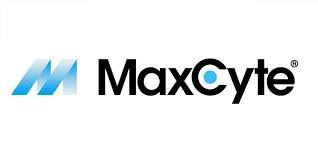预约演示
更新于:2025-09-13
MCY-M11
更新于:2025-09-13
概要
基本信息
原研机构 |
在研机构- |
非在研机构 |
权益机构- |
最高研发阶段终止临床1期 |
首次获批日期- |
最高研发阶段(中国)- |
特殊审评- |
登录后查看时间轴
关联
1
项与 MCY-M11 相关的临床试验NCT03608618
A Phase 1 Study of Intraperitoneal MCY-M11 Therapy for Women With Platinum Resistant High Grade Serous Adenocarcinoma of the Ovary, Primary Peritoneum, or Fallopian Tube, or Subjects With Peritoneal Mesothelioma With Recurrence After Prior Chemotherapy
This is a phase 1 dose escalation study to characterize the feasibility, safety and tolerability of MCY-M11 when administered as an intraperitoneal (IP) infusion for 3 weekly doses for women with platinum resistant high grade serous adenocarcinoma of the ovary, primary peritoneum, or fallopian tube, and subjects with peritoneal mesothelioma with recurrence after prior chemotherapy. The study will also assess multiple cycles of treatment and adding preconditioning with cyclophosphamide.
开始日期2018-08-27 |
申办/合作机构  MaxCyte, Inc. MaxCyte, Inc. [+1] |
100 项与 MCY-M11 相关的临床结果
登录后查看更多信息
100 项与 MCY-M11 相关的转化医学
登录后查看更多信息
100 项与 MCY-M11 相关的专利(医药)
登录后查看更多信息
7
项与 MCY-M11 相关的新闻(医药)2024-11-03
摘要:免疫细胞治疗作为一种革命性的治疗方式,显著改变了癌症护理。这是一种专业的免疫疗法,利用活的免疫细胞作为治疗癌症的疗法。与传统药物不同,细胞疗法被认为是“活药”,这些产品目前是定制的,需要先进的制造技术。尽管嵌合抗原受体(CAR)-T细胞疗法在治疗血液恶性肿瘤方面受到了行业的极大关注,但其在治疗实体瘤方面的有效性常常受限,导致替代性免疫细胞疗法的出现。肿瘤浸润性淋巴细胞(TIL)细胞疗法、细胞因子诱导的杀伤细胞(CIK)细胞疗法、树突状细胞(DC)疫苗和DC/CIK细胞疗法旨在利用身体的自然防御机制来定位和消除癌细胞,通常具有较少的副作用或风险。另一方面,如嵌合抗原受体-T(CAR-T)细胞、T细胞受体(TCR)-T、嵌合抗原受体-自然杀伤细胞(CAR-NK)或CAR-巨噬细胞(CAR-M)等细胞疗法通常使用自体干细胞、同种异体或异种细胞,或基因修饰细胞,需要更高水平的操作,被认为是高风险的。这些高风险细胞疗法通常在肿瘤靶向和信号传导方面具有特殊特性,触发新的抗肿瘤免疫反应。最近,在抗肿瘤机制和细胞疗法产品设计的基本和临床研究以及技术创新方面取得了显著进展。随着技术的迅速整合和高创新格局,关键的未来发展方向已经出现。为了满足细胞疗法技术进步治疗癌症的需求,我们在本研究中全面系统地调查了免疫细胞疗法的技术创新和临床进展。基于免疫细胞疗法的治疗机制和方法学特点,我们分析了这些疗法的主要技术优势和临床转化风险。我们还分析和预测了应用前景,为相关企业提供必要的信息,以便他们做出关于研发方向选择的明智决策。
1.引言
癌症是一种利用多种逃逸机制来躲避抗癌免疫的全身性疾病,并且显著改变整个免疫系统的功能和组成。抗癌治疗的演变跨越了一百多年,其效果和特异性不断提高,旨在消除癌细胞的同时尽量减少对健康组织的损害。为了实现这一目标,免疫细胞治疗在现有方法中脱颖而出,成为了一种改变游戏规则的解决方案。2017年,食品药品监督管理局(FDA)批准了两种嵌合抗原受体-T(CAR-T)细胞疗法,即Kite Pharm的axicabtagene ciloleucel(Yescarta)和Novartis的tisagenlecleucel(Kymriah),用于治疗淋巴瘤。这些批准标志着抗癌治疗加速发展的一个重大里程碑。免疫细胞治疗的基本概念是通过外部供应具有所需功能的细胞来增强免疫反应,以帮助患者对抗癌症。它不仅重新激活了现有的免疫反应,还推动了新的免疫反应加入到抗肿瘤努力中。免疫细胞治疗的反应通常涉及多种免疫细胞类型的激活和协作,包括抗原呈递细胞,如树突状细胞(DCs)和巨噬细胞,T淋巴细胞(T细胞)和自然杀伤(NK)细胞。肿瘤负担的免疫系统不仅在免疫细胞数量上失衡,而且在调节抗癌免疫反应的分子和信号通路上也表现出功能异常。因此,精确施用适当的治疗策略是必要的,以防止免疫细胞治疗的效果不佳。
根据癌症类型及其机制,免疫过程的各个领域为治疗干预提供了途径。方法包括,例如,提取和扩增具有预先癌症识别能力的免疫细胞(例如,肿瘤浸润性免疫细胞),外部分化有效的细胞类型[例如,细胞因子诱导的杀伤(CIK)细胞],以及基因修饰细胞以实现特定识别和肿瘤细胞消除[例如,T细胞受体(TCR)工程,嵌合抗原受体(CAR)]。在本综述中,我们将讨论最新的免疫细胞治疗,总结应用于实现和优化这些治疗类别的策略,并提供未来的展望。
2.用低风险免疫细胞治疗癌症
低风险免疫细胞治疗旨在使用患者自己的免疫细胞来消除癌细胞。需要注意的是,“低风险”强调的是细胞治疗领域内某些治疗相对更安全、副作用较少,属于再生医学或先进治疗药物产品(ATMPs)。低风险免疫细胞治疗包括四种关键技术:肿瘤浸润性淋巴细胞(TIL)疗法、CIK细胞疗法、DC疫苗和DC/CIK细胞疗法。为了更全面地理解这些方法,必须深入研究促进这些细胞治疗的基本机制和临床进展。
2.1.TIL细胞治疗
TILs是存在于实体肿瘤微环境(TME)中的天然单核细胞,包括肿瘤内肿瘤浸润性淋巴细胞(iTILs)和基质肿瘤浸润性淋巴细胞(sTILs)。与iTILs相比,sTILs主要是效应记忆T细胞,更容易被检测到。作为一群已经接触过肿瘤组织的异质性淋巴细胞,TILs“预训练”攻击癌细胞,同时留下健康的细胞。在小鼠肿瘤模型中,这些异质细胞已经显示出治疗晚期癌症的潜力,第一个人类TIL治疗导致转移性黑色素瘤显著消退。实体瘤缺乏理想的肿瘤标志物,使得靶向肿瘤相关抗原(TAAs)具有挑战性。TILs作为具有多样化受体的多克隆细胞,为实体瘤提供了独特的治疗选择。与基因修饰的免疫细胞相比,TILs在克服实体瘤的异质性方面表现出优越性,特别是像黑色素瘤这样高度异质性的肿瘤。此外,它们具有注射后迁移至TME的趋化因子受体,并且与CAR-T细胞相比,它们的非靶向毒性较低,这归因于T细胞成熟过程中的负选择。
TILs可以从切除的肿瘤组织中分离出来。鉴于TIL在原始TME中的稀缺性,可供扩增的TIL数量有限,以及阻碍TIL抗肿瘤细胞毒性的额外因素(例如,Treg,肿瘤相关巨噬细胞,髓系抑制细胞和各种免疫抑制分子)。TIL的生产和扩增是TIL治疗成功的至关重要步骤。TIL在体外的扩增涉及快速扩增协议(REP)。在REP前阶段,TILs在高剂量白细胞介素(IL)-2下进行初级扩增。一些方法涉及选择肿瘤特异性TILs进行进一步扩增,而其他方法则扩增大量TILs以保持疗效。在REP阶段,同时给予高剂量IL-2和抗CD3,并使用辐照的同种异体外周血单核细胞(PBMCs)作为饲养细胞,直到获得足够数量的细胞。然后,经过质量控制的扩增细胞产品准备用于患者给药后进行淋巴细胞减少。
自1988年Rosenberg等人成功将TIL治疗应用于转移性黑色素瘤患者以来,一系列临床试验相继出现。1996年,TIL治疗首次被引入用于治疗非小细胞肺癌(NSCLCs),在涉及113名患者的临床研究中。结果显示,TIL与IL-2联合使用对NSCLCs是一种有效的治疗方法,与II期或IIIa期相比,对IIIb期NSCLCs有选择性益处。在初步成功后,TIL治疗的后续发展一直朝着提高治疗其他肿瘤类型的疗效方向发展,包括皮肤、肾脏和胃癌。这些发展中的具体方法旨在阐明TIL细胞类型的组成及其与临床结果的相关性。例如,成功生成的肿瘤浸润性B淋巴细胞(TIBs)已被发现可以预测转移性肾细胞癌(mRCC)患者的临床结果改善。另一项关于胃癌TIL治疗的研究表明,TIL的组织学亚群与不同的存活时间相关。目前,TIL治疗的临床转化仍处于初步阶段,缺乏长期临床观察。然而,初步成功表明有机会开发具有更有效分离和扩增方法的有希望的治疗性TILs,并可能与其他抗肿瘤疗法结合使用。
2.2.CIK细胞疗法
CIK细胞是具有混合T和NK细胞样表型的异质免疫效应细胞。它们是通过将人的PBMC或脐带血单核细胞与干扰素γ(IFN-γ)、抗CD3抗体、重组人IL-1和IL-2一起体外培养产生的。CIK细胞独特地表现出对肿瘤的主要组织相容性复合体(MHC)不受限制的靶向性,减少异体反应性,并能够攻击各种肿瘤类型。在体外培养过程中,CIK细胞分泌各种细胞因子以激活巨噬细胞、NK细胞和CD8+ T细胞的细胞毒性活性,从而直接抑制肿瘤细胞的生长并促进间接杀伤效果。CIK细胞诱导凋亡基因和抗肿瘤基因的表达,进行细胞毒性活动并促进肿瘤细胞凋亡。它们主要通过粘附分子淋巴细胞功能相关抗原-1/认知配体细胞间粘附分子-1(LFA-1/cam-1)与肿瘤细胞上的抗原结合的机制来实现肿瘤杀伤效果。这促进了MHC-I或MHC-II分子的表达,导致增强的呈递、激活、识别和直接杀伤肿瘤细胞。
激活的CIK细胞分泌各种细胞因子,包括IL-2、IL-6、肿瘤坏死因子α(TNF-α)、粒细胞巨噬细胞集落刺激因子(GM-CSF)和其他细胞因子,不仅直接增强细胞毒性效果和抑制肿瘤细胞,还通过调节免疫系统间接杀死肿瘤细胞。主要由CIK细胞产生的IFN-γ增强了NK细胞、巨噬细胞和细胞毒性T淋巴细胞(CTL)的活性。它还可以促进肿瘤细胞上MHC-I分子的表达,导致CTL杀伤增加。最近的研究指出,CIK细胞分泌的IFN-γ可以促进慢性淋巴细胞性白血病(CLL)细胞上ICAM-1的表达,对细胞毒性效应细胞的凋亡诱导产生积极影响。肿瘤细胞的凋亡基因也可以被CIK细胞激活,因为这些细胞表达FasL,一种属于TNF超家族的Fas配体,它诱导肿瘤细胞凋亡。Verneris指出,某些肿瘤细胞(如黑色素瘤和卵巢癌)通过诱导表达FasL的淋巴细胞凋亡来逃避免疫清除,但它们对CIK细胞敏感。这是因为,在CIK细胞的诱导过程中,Fas敏感或激活的T细胞被IFN-γ等细胞因子的作用或激活诱导的细胞死亡机制选择性地消除。结合CIK细胞中高水平的抗凋亡基因表达,这些因素使CIK细胞能够耐受表达FasL的肿瘤细胞诱导的凋亡。
尽管存在复发和无反应性的担忧,CIK细胞的异质性使它们能够靶向并杀死各种肿瘤细胞。自1991年引入CIK细胞疗法以来,已有超过5,000名患有多种肿瘤类型的患者,包括肺癌、乳腺癌、脑癌和结肠癌等,参与了CIK细胞疗法。全球CIK细胞(或CIK细胞与DC联合)的临床试验已超过80项。CIK细胞的治疗潜力超出了它们与NKG2D的相互作用,包括抗体依赖性细胞介导的细胞毒性(ADCC)轴。与其他免疫疗法、常规化疗或放疗一起,CIK疗法表明了协同的抗肿瘤效果,正在发展中,是治疗癌症的一条令人鼓舞的途径。虽然临床前景看好,但一些公开讨论是必要的。与其他免疫细胞相比,CIK细胞输注后的毒性效应、最小化额外的支持性护理、确定与其他免疫疗法的优势、了解与CIK细胞在癌症微环境中的串扰的关键决定因素,以及在多个中心推广这种方法需要探索。
2.3.DC疫苗
操纵患者的自体DCs进行“疫苗接种”以对抗肿瘤组织是一种有前景的方法。DC疫苗涉及用TAAs(如肽、蛋白质、DNA/RNA或病毒)处理体外培养的DCs。DCs将摄取抗原,然后在仔细控制的培养过程中激活。DCs作为强大的抗原呈递细胞,对影响免疫系统起着至关重要的作用。虽然未成熟的DCs处理外来抗原,触发成熟和迁移到淋巴结,成熟的DCs可以在TME内促进肿瘤耐受,可能导致T辅助型2反应。
DC疫苗,通常采用体外成熟的自体单核细胞并用抗原冲击,已在多种肿瘤患者中显示出良好的耐受性和最小的毒性。然而,抗原特异性免疫反应的幅度和持续时间普遍较弱,限制了客观的临床反应。尽管在儿童肿瘤中的反应有限,正在进行的研究集中在增强疫苗生产的每一步上。策略包括扩大DC来源、提高免疫原性、优化抗原选择、开发新的免疫佐剂以及探索同时进行的免疫调节或化疗。
Sipuleucel-T是唯一获得FDA批准的自体DC疫苗,为有效的成人恶性肿瘤治疗提供了希望,特别是对于去势抵抗性前列腺腺癌。通过培养患者的PBMCs与一种由TAA(前列腺酸性磷酸酶(PAP))和GM-CSF组成的重组蛋白(PAP-GM-CSF)来生产。这种开创性的疫苗代表了DC疫苗领域的一个重要进展,展示了在成人和儿童恶性肿瘤中改善结果的潜在途径。在临床试验中,DC主要用于与CIK细胞、免疫检查点抑制剂(ICI)以及化疗和放疗结合的免疫疗法中以改善结果。研究表明DC能够激活自然杀伤T(NKT)细胞,或同时激活CD4+和CD8+ T细胞。
2.4.DC/CIK细胞疗法
当多种低风险的免疫细胞疗法一起使用时,可以实现积极的综合协同效应,特别是在DC和CIK的共同应用中尤为明显,它们是可适应和协同的。这种协同作用旨在增强身体对疾病的免疫反应。CIK细胞以其广谱的肿瘤杀伤效果而闻名,但由于缺乏特定的识别能力而受到限制。DC目前被认为是最有效的抗原呈递细胞,最近的研究表明CIK和DC之间的相互作用会在两个群体内部引起免疫刺激性表面分子表达的变化。实际上,与CIK细胞共同培养DCs发挥了互补作用,相互促进成熟,共同增加抗肿瘤活性,并展现出有希望的协同效应,即使在之前对CIKs有抵抗力且之前未与DCs共同培养的肿瘤细胞系上也是如此。DC分泌的细胞因子,如IL-2、IL-12和IFN-γ增强了CIK细胞的成熟,导致CIK细胞中CD3+、CD8+和CD56+亚群的水平增加。值得注意的是,DCs显著增加的IL-12分泌显著增强了CIKs的细胞溶解功能。此外,这种合作环境还减少了IL-10的分泌和调节性T细胞(CD4+CD25+ Treg细胞)的数量,减弱了它们对肿瘤免疫的抑制作用,并增强了CIK细胞的肿瘤杀伤效果。同时,CIK细胞增强了DCs的抗原呈递特异性和共刺激分子的表达,有助于整体增加抗肿瘤活性。此外,DC和CIK细胞的共同培养抑制了人类端粒酶逆转录酶(hTERT)蛋白的表达,抑制了端粒酶活性,并阻碍了肿瘤细胞的增殖。
基于上述机制,DC-CIK疗法以相互适应和协同为特点,已成为近年来肿瘤治疗领域的研究焦点。基础和临床研究迅速发展,并证明了在显著增强抗肿瘤免疫方面的有效性。尽管存在轻度移植物抗宿主病(GvHD)的担忧,试验经验表明结果是可控的。案例研究已经证明了安全性和提高的疗效。DC/CIK细胞疗法针对免疫系统的多个方面,从而形成了更全面的对抗疾病的方法。这在复杂情况或难治性恶性肿瘤中尤为有益,其中多种免疫功能障碍发挥作用。总的来说,低风险的免疫细胞疗法可以帮助增强免疫系统识别和消除有害实体的能力,从而改善健康结果。这些疗法的协同效应有潜力显著提高基于免疫的治疗的有效性,并为患者提供更好的结果。然而,评估和定制这些疗法的确切组合和剂量以确保其对个体患者的安全性和有效性至关重要。
3.高风险免疫细胞治疗技术的进步
高风险免疫细胞治疗使用自体干细胞、异体或异种细胞,或基因修饰细胞,所有这些细胞都需要进一步的操作和评估。这些治疗的设计非常适合其预期目的。这些治疗刺激针对肿瘤的新免疫反应,通常有潜力重新激活已有的反应。在这里,我们描述了高风险免疫细胞治疗中的特征设计、转染方法、细胞来源,以及克服抑制性肿瘤微环境(TME)的方法,包括CAR-T、T细胞受体-T(TCR-T)、CAR-NK和CAR-巨噬细胞(CAR-M)。此外,我们提供了对未来趋势的见解。
3.1.CAR的设计
CAR是工程受体蛋白,为免疫细胞提供了识别癌细胞表面特定抗原的新能力,从而可能触发免疫细胞消除癌细胞的潜力。当前研究表明,即使是对CAR结构的微小修改也可能会显著影响治疗效果。它通常由三个模块化域组成:细胞外域、跨膜域和细胞内域。
细胞外域:靶向的艺术。细胞外域包括一个用于目标结合的单链可变片段(ScFv)和一个铰链区域,通常在CAR工程细胞中的免疫球蛋白(Ig)样域铰链,并通过跨膜域锚定到细胞膜。通过CAR的细胞外域引入了驱动免疫细胞激活的新功能,包括T细胞、NK细胞和巨噬细胞。CAR工程免疫细胞能够识别癌症特异性靶标表位,不受MHC和共受体的限制,使它们在寻找和杀死癌细胞方面更有效。
CAR工程免疫细胞已经从针对单一抗原发展到针对两种不同抗原,以优化治疗阴性抗原癌细胞逃逸或抗原丢失的复发,并且结合任一抗原都将触发CAR工程免疫细胞的激活。这可以通过几种方式实现(图1A-C),例如将编码两个独立CAR分子的单个双顺反子向量转导到单个细胞中,或将编码双价CAR分子的向量转导到细胞中,或共同给药两种不同的CAR工程免疫细胞产品,或共同转导两个向量到单个免疫细胞中编码不同的CAR。这些方法对于B细胞淋巴性白血病特别有前景,尤其是对于复发或难治性B细胞急性淋巴性白血病(B-ALL),因为临床研究表明CD19/CD22共转导CAR-T细胞具有显著的疗效,以及CD19/CD22双特异性CAR-T细胞。同样,I期临床试验表明,双特异性CD20/CD19 CAR-T也可用于治疗复发和难治性B细胞恶性肿瘤患者,治疗28天后的总体反应率为82%,显示出治疗目的的安全性和有效性。此外,Wang等人表明,CD19/CD22双顺反子CAR-T与单特异性CD19或CD20 CAR-T细胞相比,在体外和体内表现出相当或更好的功能。
除了ScFv的优化,细胞外区域也得到了改进。与传统CAR直接作用于靶细胞不同,研究人员提出了一个新概念:模块化CAR(modCAR)。这种CAR-T(图1D、E)通常与其适配器一起工作,适配器的一端结合到细胞上,另一端用于识别和结合肿瘤表面抗原。适配器分子可以是单克隆抗体、抗体片段(图1D)、小分子或任何结构(图1E),只要能针对至少一个所需的抗原并介导目标与效应细胞之间的交联。它提供了一种高度灵活、可定制和通用的方法,以快速优化效应细胞活性,潜在地实现智能抗原靶向。
图1. CAR的设计策略。针对肿瘤的CAR设计示意图。(A) 通过将编码两个独立CAR分子的双顺反子载体转导到单个细胞中,可以生成双顺反子CAR工程细胞。(B) 通过将编码串联CAR分子的载体转导到细胞中,生成双价CAR。(C) 通过共同给予两种不同的CAR工程免疫细胞产品(上图)或共同转导两种编码不同CAR的载体到免疫细胞中(下图),实现双特异性,但产品将复杂且昂贵。可以使用抗体(D)或其他适配器(E)生成modCAR。(F) 设计装甲CAR以共表达分子,包括细胞因子和/或趋化因子,以增加效果和持久性。(G) SynNotch CAR通过添加分泌蛋白和结合剂,并利用特设计对机制执行AND、NOT和OR布尔逻辑门。这也可以通过特设计的转录因子和转录机制(H)实现。CAR:嵌合抗原受体;modCAR:模块化CAR。
装甲CAR细胞(图1F)旨在分泌细胞因子或其他分子,以帮助抵消肿瘤微环境(TME)的免疫抑制特性,潜在地提高CAR工程细胞的持久性和有效性。有时被称为第四代CAR细胞或TRUCKs(T细胞重定向用于抗原无限制的细胞因子启动的杀伤),它们为CAR靶向组织提供了一种多功能治疗,超越了传统CAR-T细胞的能力。TRUCK概念目前正在通过共表达分子如趋化因子配体或基于第二代或第三代CAR的细胞因子组合进行探索。其中,IL-7、IL-12、IL-15、IL-18、IL-23以及这些分子的各种组合正在早期阶段试验中。值得注意的是,IL-7和IL-15已被发现可以促进CAR-T细胞的增殖,而IL-12和IL-18增强了T细胞的效应能力。此外,表达特定分子的工程CAR-T细胞,如CCL-19或CCL-21,能够趋化其他免疫细胞或CAR-T细胞向附近的癌细胞移动。这增强了免疫细胞的渗透和CAR-T细胞的存活,从而提高了CAR-T细胞的有效性。
CAR设计中的最新发展是合成Notch(SynNotch)受体(图1G,H),它提供了一种精确的靶向策略,允许精确控制CAR工程细胞的激活,同时通过引入可诱导的开关来最小化非靶向效应。一个典型的案例使用了布尔逻辑和逻辑门的原理,当所有条件满足时,通过构象变化激活的共定位依赖的蛋白开关(Co-LOCKR)可以执行AND、NOT和OR布尔逻辑门。在体外已经证明了针对癌细胞的特异性,但在临床应用中仍面临各种挑战。
细胞内域:信号和细胞功能。细胞内域由一系列共刺激域组成,CAR的分类基于共刺激域的数量。第一代CAR仅由CD3ζ组成,而第二代CAR除了CD3ζ外还含有一个共刺激域,第三代CAR则涉及一个以上的共刺激域以及CD3ζ。
在T细胞中,第一代CAR已构建包含编码针对2,4,6-三硝基苯酚(TNP)抗体的可变区域的重组基因片段,这些片段被拼接到α或β T细胞受体(α或β TCR)的C区之一。转导T细胞后,这种结构可以稳定地表达在T细胞表面,并能够识别MHC非限制性的肿瘤细胞,但在临床试验中显示出较弱的抗肿瘤效果。第二代CAR-T利用T细胞激活的经典信号,并增加了一个共刺激分子,如4-1BB(也称为CD137)或CD28,这显著提高了CAR-T细胞的激活水平和增殖能力。临床数据支持接受第二代CAR-T细胞治疗的患者对其肿瘤负担有延长和有效的控制。新发现的共刺激分子包括可诱导的共刺激分子(ICOS)、OX40(也称为CD134)和CD40等。第二代CAR结构在临床实践中最广泛使用。第三代CAR-T细胞包含两个共刺激分子,导致增强的细胞毒性。在临床试验中,当共同给予淋巴瘤患者CD19导向的第二代CAR-T细胞(带有CD28共刺激域)和第三代CAR-T细胞(带有CD28和4-1BB)时,观察到更长的持久性和优越的扩张。然而,目前评估仅第三代CAR-T的临床数据有限。在一个研究者发起的试验中,HD-CAR-1,一种第三代CAR-T治疗,在成人复发/难治性ALL患者中进行了评估。在90天的研究期结束时,80%的患者实现了完全缓解。此外,最近的研究表明,配备有4-1BB和CD28共刺激域的CAR-T细胞增强了T细胞记忆表型,与仅有一种共刺激分子的细胞相比,表现出更好的增殖和细胞因子释放水平。
迄今为止,大多数涉及CAR-NK细胞的研究都使用了最初用于T细胞的CAR构建。已经开发了包含CD28或4-1BB共刺激域的第二代CAR-NK。最近的研究报告称,含有细胞内域的CAR-NK,包含4-1BB和CD3ζ,克服了抑制信号并诱导了NK细胞特异性,导致杀死CD19+ aALL细胞。然而,已经为NK细胞特别创建了新的CAR设计,这些不同的CAR构建对NK细胞的细胞毒性和细胞因子产生有不同的影响。研究表明,包含NK特异性共刺激域2B4(也称为CD244)的CAR-NK细胞对肿瘤细胞有显著增强的细胞毒性活性,诱导快速增殖,增加细胞因子产生,并减少凋亡。这表明,与NK细胞上的常规4-1BB CAR相比,NK细胞特异性激活信号在CAR性能中起着至关重要的作用。此外,利用不同的信号域,如CD3ζ、DAP10和DAP12的CAR构建,在原代NK细胞或NK92细胞系中表现出不同的抗肿瘤活性。具体来说,与包含DAP10域的CAR相比,具有CD3ζ信号域的CAR表现出优越的性能,而使用DAP12域的CAR优于包含CD3ζ域的CAR。
CAR-M细胞与CAR-T细胞具有相同的结构和代级分类,但其细胞内信号域的功能不同,主要是为了增强吞噬作用。CAR-M细胞能够直接利用CD3ζ细胞内域传递吞噬信号。Fc受体(FcRγ)的γ亚基和多个表皮生长因子样域蛋白10(Megf10)也可以作为细胞内信号域。最近的研究结果表明,添加一个串联的PI3K招募域可以增加对癌细胞的吞噬。CAR-M的第一个临床试验产品是第一代产品,包含CD3ζ作为其细胞内域,并且第一阶段的临床试验结果显示了有希望的初步安全性和有效性结果,并获得了FDA的快速通道指定。
4.提高基因转移方法的效率
在免疫疗法中引入核酸,包括基因表达和CRISPR基因编辑,是一个至关重要但具有挑战性的步骤。近年来,非病毒转染技术因其在克服与病毒载体生产相关的劳动密集和昂贵程序以及cGMP合规性方面的经济利益而越来越受欢迎。例如,转座子或移动遗传元素被用来实现高效和持久的转基因表达,在产生稳定的CAR-T细胞方面引起了极大的兴趣。此外,电穿孔或机械穿孔能够使免疫细胞如T细胞短暂表达基因组编辑核酸酶,例如CRISPR-Cas9的表达,并已在基于mRNA的人类T细胞修饰中进行了探索。这些非病毒转染技术在程序简单性、容量和吞吐量以及有利的安全概况方面提供了优势。
与非病毒转染相比,病毒转导方法在临床环境中是主流模式,并被广泛认为是转染困难细胞类型(如免疫细胞)的一种高效方法。常用的病毒载体,如腺相关病毒载体和腺病毒载体,不能整合到宿主基因组中。然而,逆转录病毒载体和慢病毒载体可以整合,并且表现出高传递效率,使它们非常适合转导高度复制的细胞,如免疫细胞。Tecartus和Yescarta都是由Kite Pharma生产,依赖于γ逆转录病毒(GRV)载体将CAR构建体转导到T细胞中,而Kymriah则使用慢病毒(LV)载体进行转导。一般来说,γ逆转录病毒和LV系统经常用于将基因转移到T细胞中,研究表明它们通常可以获得30%-80%的转导效率。然而,安全性、效率和便利性问题是必须考虑的问题。
与T细胞相比,病毒基因传递到原代NK细胞已被证明既具挑战性又效率低下,可能由于NK细胞的固有特性。研究表明,使用逆转录病毒载体成功转染原代扩增的NK细胞,单轮转染效率范围为27%-52%,经过两轮转染后为47%-75.4%。虽然逆转录病毒已被广泛用于最近的临床前和临床研究中生产CAR-NK细胞,但缺乏有效的基因转移方法仍是NK细胞在免疫疗法中使用的主要障碍。此外,与逆转录病毒转染相关的插入性突变和对原代NK细胞活性的有害影响是临床应用中的主要限制。与逆转录病毒载体相比,基于慢病毒的转染具有较低的遗传毒性和插入性突变风险。然而,原代NK细胞在LV转导中的效率很低,需要多轮转染。最近,Bari等人表明,用狒狒包膜糖蛋白变体(BaEV-LV)伪型的LV载体的转导效率比用泡状口炎病毒糖蛋白(VSV-G-LV)伪型的高20倍以上,这是用于伪型LV载体的第一种且仍最广泛使用的糖蛋白。他们通过这种转染方法成功地在约70%的不同供体的原代人类NK细胞中表达了CD19-CAR,这些CD19-CAR NK细胞有效地且特异性地根除了CD19阳性肿瘤细胞。用BaEV-gp伪型的慢病毒带有肿瘤特异性CAR在NK92细胞中的转导率几乎达到100%,在iPSC衍生的NK细胞或激活的原代NK细胞中为50%-80%。因此,它可能是NK细胞CAR基因转移的有希望的载体。此外,用长臂猿白血病病毒(GaLV)包膜蛋白伪型的慢病毒可以有效转导原代NK细胞。电穿孔和脂质体介导的转染方法也用于在NK细胞中传递外源基因。与上述病毒转染相比,这些方法提供了更快的转基因表达、降低的凋亡水平、更小的个体间差异和更高的基因转移效率。然而,外源DNA通常不会整合到目标细胞的基因组中,导致转基因表达在转染后约3-5天内下降。但当与DNA整合技术结合时,这些方法可以产生稳定转染并表达转基因的细胞。DNA转座子是可以通过切割和粘贴机制在载体和染色体之间有效转座的移动DNA元素。PiggyBac(PB)和Sleeping Beauty(SB)是迄今为止最常用的两种转座子系统,与其他系统相比,在哺乳动物细胞中显示出最高的转座活性。通过将含有CAR的质粒和转座酶DNA转染到iPSC中,成功地稳定创建了表达CAR分子的CAR-iPSC-NK细胞。
与病毒载体相比,转座子系统提供了许多好处,例如较低的免疫原性、增加的生物安全性、降低的生产成本,以及能够转移基因片段,其载荷能力接近9-10 kb。这些优势使其成为将CAR整合到NK细胞基因组中以实现持久表达的一个有力选择。然而,要充分利用转座子系统对原代NK细胞进行转染,需要进行优化,例如通过电转染提高转导效率和细胞活性。
巨噬细胞比其他造血系统中的细胞更难转染和抵抗遗传操作,因为它们有能力识别并响应外来核酸。Bobadilla及其同事创建了一种基于HIV-1的慢病毒系统,该系统通过感染时Vpx诱导的SAMHD1降解,已被证明可以有效传递转基因到骨髓细胞。Klichinsky团队使用复制缺陷的嵌合腺病毒载体Ad5F35有效地传递CAR到巨噬细胞,并同时促进M1表型的表达,最终增强了肿瘤杀伤活性。这些结果强调了基因工程巨噬细胞在癌症免疫疗法中的潜力。与生成CAR-NK细胞的方法类似,转座子系统也被用来将感兴趣的基因整合到宿主基因组中。
4.1.新型细胞来源方法推动现成的免疫细胞治疗产品
迄今为止,所有商业批准的癌症免疫细胞疗法都依赖于自体使用,即使用的材料是患者自己的细胞。尽管这种方法已证明有效,但存在一些重要的限制,例如在处理快速癌症进展的患者时制造的不良等待时间,由于患者T细胞功能障碍可能导致的生产失败,与健康淋巴细胞一起提取的恶性白血病细胞污染产品的风险,高生产成本,标准化的复杂性,以及再剂量机会的限制。因此,当前的研究工作集中在开发同种异体疗法上,以克服自体疗法的限制。特别是,CAR-NK是一种有前景的同种异体细胞治疗,对实体瘤和血液系统恶性肿瘤均无重大毒性副作用。它是一种更简单、可再注射、更实惠的通用治疗。
然而,当前的治疗尚未显示出强大的疗效和/或长期持久性,并且NK细胞更难进行工程改造。CAR-NK细胞的研究主要在临床前和早期临床试验阶段,很少有临床试验报告。尽管如此,通用的同种异体CAR-NK细胞在癌症治疗中仍显示出巨大潜力。
目前,CAR-M主要是自体疗法,但“现成的”同种异体CAR-M已经出现并正在进行进一步研究。
在开发同种异体方法时,必须系统地解决最重大的风险:免疫排斥和GvHD(移植物抗宿主病)的发展。免疫排斥可能限制治疗的效力,因为接受者的免疫系统可能会排斥移植物。GvHD可能是致命的,由供体T细胞内源性的αβ TCR复合体识别宿主肽-人类白细胞抗原(HLA)复合体引起,导致组织损伤。为了解决同种异体风险,可以采用两种主要策略。第一种是在供体αβ T细胞上除了引入CAR转基因外,还进行额外的遗传修改。另一种是选择替代的细胞来源或亚群,如诱导多能干细胞(iPSCs)、脐带血(UCB)细胞、γδ T细胞、记忆T细胞亚群、病毒特异性T细胞(VST)等。
为了消除内源性αβ TCR介导的GvHD,最直接的方法是破坏编码T细胞受体恒定(TRAC)α链的基因。Eyquem等人开发了一个案例,通过腺病毒转染和CRISPR-Cas9敲入技术将CAR构建体整合到TRAC位点,同时诱导CAR表达和TCR失活。与随机整合相比,CAR表达可以由内源性TCR启动子调控,并在暴露于抗原时模仿TCR转录,防止恒定的和过度的T细胞激活,这可能导致T细胞分化和耗竭。此外,研究结果表明,这些TRAC-CD19 CAR-T细胞在ALL小鼠模型中显示出比用逆转录病毒编码的CAR的T细胞更大的抗肿瘤效力。
此外,除了CRISPR-Cas9,基因编辑技术,如TALENs和锌指核酸酶(ZFNs),也被发现在消除TCR表达以创建“通用”供体T细胞方面有效。然而,尽管TCR缺失的CAR-T细胞降低了GvHD的风险,但其长期持久性较短,可能是由于免疫排斥。因此,科学家们敲除了β2-微球蛋白(B2M)基因以限制HLA类I分子的表达。这种方法防止了异体CAR-T细胞通过它们的TCR被识别为外来物,但仍然容易受到宿主NK细胞的溶解。因此,一项研究使用突变的B2M融合蛋白来解决这个问题。为了在激活的异体CAR-T细胞生产过程中提高HLA-II消除的效率,一些学者提出抑制CIITA或HLA-DRA、HLA-DQA和HLA-DPA基因。
iPSCs具有无限的增殖和分化潜力,使它们成为创建众多同质HLA组合库的理想资源。通过从库中选择一个HLA匹配的iPSC来源,可以最小化宿主和移植物之间CAR-T细胞的免疫排斥风险,但必须进行严格的质量控制以确保安全,因为未分化的、增殖的iPSCs可能引发不良结果。Wang等人生成了缺乏HLA-I/II、B2M和CD155的低免疫原性iPSC衍生的CAR-T细胞。
研究通过体内发挥效应功能证明了它们抑制肿瘤进展的有效性。此外,iPSCs也为生产满足临床需求的CAR-NK和CAR-M细胞铺平了道路。与分化的NK细胞或巨噬细胞相比,iPSCs可以更有效地被工程化以稳定表达CARs。Li等人通过在培养基中添加各种细胞因子和促分化蛋白来分化CAR转染的iPSCs为CAR-NK细胞。这些iPSC衍生的CAR-NK细胞在体外和体内都显示出强大的抗肿瘤活性。Zhang等人建立了一个骨髓/巨噬细胞分化协议,诱导CAR-iPS向骨髓细胞系分化,成功产生了足够的CAR-iMac细胞(iPSC衍生的CAR-M细胞)。然而,当在小鼠模型中测试时,CAR-iMacs的有效性有限。总的来说,iPSC衍生的工程免疫细胞的发展涉及复杂的生产程序,需要精确的细胞产品制造和质量保证,以支持更广泛的临床应用。
γδ T细胞表达TCRγδ并以HLA独立的方式识别恶性细胞。它不需要消除TCR表达或信号,并且GvHD的风险低或不存在。研究表明,γδ CAR-T细胞显示出与传统的αβ CAR-T细胞相似或更大的细胞毒性效应,并且在体内没有观察到GvHD。然而,它们在体外的细胞毒性能力持续性较差。此外,针对CD20的γδ CAR-T细胞在B细胞淋巴瘤的动物模型中取得了有希望的结果,目前正在进行第一阶段的临床试验。
脐带血(UCB)提供了一个容易获得的NK细胞和同种异体T细胞来源。它们富含γδ T细胞和造血干细胞(HSCs),尽管总细胞数量有限。UCB衍生的CAR-T细胞在体内显示出增强的肿瘤抑制作用,减少了IL-10的分泌,并降低了调节性T细胞(Tregs)的比例,表明了改善的治疗潜力。Van Caeneghem等人从脐带血中分离出CD34+ HSCs,然后生成CAR-T细胞。这些CAR-T细胞具有原始表型(CD45RA+ CD62L+),并且不表达TCRαβ复合体,显著降低了GvHD的风险,并有效地消除肿瘤细胞。
记忆T细胞的特征是CD45RA−CD45RO+表型,它们不太可能发展为GvHD,也不太可能迁移到表现GvHD的器官。研究表明,T记忆干细胞(TSCM)和中央记忆T细胞(Tcm)与它们的分化对应物相比,具有优越的增殖和干细胞潜力,并且在T细胞转移后的临床研究中表现出高扩张和持久性。
VSTs拥有能够识别病毒抗原的TCR,如巨细胞病毒(CMV)、Epstein-Barr病毒(EBV)等。经过CAR改造的VSTs在实体瘤中显示出有希望的结果,但与CARs相比,工程化针对肿瘤的转基因TCR VSTs更具挑战性。在肿瘤细胞中表达EBV相关抗原的霍奇金淋巴瘤患者中,输注CAR-VST细胞取得了良好的耐受性和缓解率。针对HER2的CAR-VST细胞产品在CMV血清阳性和进行性胶质母细胞瘤患者的第一阶段临床试验中显示出既安全又临床有效。值得注意的是,可以建立VST库,以覆盖大多数患者,并促进CAR-T或TCR-T重定向到肿瘤的临床使用。
PBMCs通常来自外周循环或脐带血等。它是临床目的的主要NK细胞来源。PBMC衍生的NK(PB-NK)细胞可以从HLA匹配和不匹配的供体中分离出来,扩大了潜在供体池。通常,它们显示出成熟的表型,增殖能力降低,细胞毒性增加,没有GvHD的风险。Töpfer等人已经证明,表达CAR的NK细胞系YTS以及PB-NK细胞可以成功地重定向针对前列腺干细胞抗原(PSCA)阳性肿瘤,导致大部分治疗小鼠的肿瘤被完全根除。一种短暂表达针对间皮素的mRNA CAR,MCY-M11的CAR-PBMC细胞产品已进入临床试验,它是一种混合产品,包含不同的CAR工程T细胞亚群、单核细胞和B细胞群体,展现出理想的功能和免疫表型特征。
NKT细胞,也称为CD1d限制性T细胞,是一类同时具有T细胞和NK细胞特性的异质性T细胞群。这些细胞主要识别非多态性CD1d分子,这是一种结合自身和外来脂质以及糖脂的抗原呈递分子。I型NKT细胞或称为iNKT细胞不具有HLA限制性,可能作为通用供体细胞发挥作用,但其在体内的持久性尚未知晓。研究表明,CAR19-iNKT细胞表现出抗淋巴瘤活性,并且具有增强的消除脑淋巴瘤的能力。另一种异体NKT细胞,表达带有CD28和IL-15的抗CD19嵌合受体,目前正在进行临床试验,针对复发或难治性B细胞恶性肿瘤患者(NCT03774654)。
4.2.改善肿瘤微环境以增强治疗性免疫细胞的效果
免疫细胞治疗实体瘤的效果受限于低持久性和注入后的不充分增殖,这在很大程度上归因于免疫抑制微环境,它不是被动的旁观者,而是癌症进展的积极推动者。肿瘤细胞居住在这个由浸润和驻留宿主细胞(如T细胞和巨噬细胞)、分泌因子(如IL-10和转化生长因子-β(TGFβ))以及细胞外基质(ECM)组成的异质微环境中。这些组分可以相互作用,为恶性细胞的生长、迁移和转移创造支持性环境,从而逃避免疫系统和肿瘤特异性细胞毒性T细胞。为了根除肿瘤,科学家们开发了几种策略来促进CAR工程或TCR工程治疗性免疫细胞向癌症焦点的迁移和渗透,包括利用趋化因子受体如CCR2、CXCR2、CCR4、CXCR4等。这些研究表明,CAR-T、TCR-T和NK细胞显示出增加的肿瘤渗透率,导致肿瘤退缩和增强的抗肿瘤效果。然而,将基因工程免疫细胞渗透到肿瘤中只是抗癌的第一步。有时,可能需要直接转化方法来修改免疫抑制微环境。使用免疫检查点抑制剂,如抗PD-1、抗PD-L1抗体和抗CTLA4抗体,可以改善免疫抑制肿瘤微环境。然而,它可能导致药物抗性的出现、T细胞耗竭和复发,有时甚至会导致危及生命的毒性。在肿瘤微环境中阻断TGF-β信号是另一种提高检查点抑制剂效果和增强抗肿瘤反应的方法,因为它在肿瘤信号、重塑和代谢中起着至关重要的作用。临床证据也表明TGF-β信号与对检查点阻断剂无反应的患者之间存在相关性。为了解决这个问题,已经开发了双功能抗体-配体陷阱,使用针对CTLA-4或PD-L1的抗体与TGFβ受体II外域(TGFβRIIecd)融合。它可以在肿瘤微环境中隔离TGF-β,耗尽调节性T细胞,并促进CTL共刺激。此外,通过转导优势负性TGFβ受体-II(dnTGFβRII),开发了对TGFβ有抵抗力的肿瘤特异性T细胞,并已在动物模型和临床研究中显示出治疗益处。另一种新策略是利用肿瘤微环境中高浓度的免疫抑制信号分子,通过引入嵌合开关受体(CSR),如PD-1:CD28、TIGIT:CD28、CTLA-4:CD28、TGF-βRII:4-1BB、Fas:4-1BB。CSR由PD-1、CTLA-4或TGF-βRII的细胞外域和CD28或4-1BB的细胞内域组成。T细胞与CSR一起被转导,与CAR或TC共表达,以产生工程化CTL。这些工程化CTL仍然与肿瘤细胞上的免疫抑制分子相互作用,但通过细胞内域传递共刺激信号而不是抑制信号。最近,这一策略已经进行了临床测试。这些工程化细胞被发现能有效克服免疫抑制肿瘤微环境,例如分泌更多的IFN-γ,积聚在肿瘤中,并展现出优越的抗肿瘤功能。细胞外基质为各种抗癌疗法创造了物理屏障。然而,巨噬细胞在调节ECM和展示肿瘤归巢行为方面发挥着关键作用。CAR工程巨噬细胞被证明能主动迁移到肿瘤部位,可以作为药物递送系统在抗原特异性环境中局部递送细胞因子和/或细胞毒性物质,显著改变免疫抑制肿瘤微环境,并通过吞噬作用消除肿瘤细胞。张等人使用CAR修饰的巨噬细胞解决了ECM引起的免疫细胞渗透不足的问题。体外研究表明,CAR-147巨噬细胞能够重塑肿瘤的ECM,诱导CD3+ T细胞渗透,并提高肿瘤微环境中IL-12和IFN-γ的水平,最终展现出抗肿瘤效果。
4.3.临床研究进展
从临床进展的角度来看,自2017年FDA批准首个CAR-T细胞疗法产品以来,全球已有10个CAR-T产品获得批准(补充表1)。自2013年以来,CAR-T、CAR-NK和TCR-T疗法的临床研究迅速增加,到2022年CAR-T细胞疗法的数量达到258例,值得注意的是,2023年的数据来自1月至10月(图2A)。从国家角度看,高风险细胞疗法的临床研究主要分布在美国和中国,占全球研究的80%以上(图2B)。CAR-T疗法的主要临床治疗靶点是CD19、CD22、CD20和B细胞成熟抗原(BCMA)。在血液肿瘤中,增长最快的适应症是淋巴瘤和骨髓瘤。目前,TCR-T有一种治疗产品在市场上,用于转移性葡萄膜黑色素瘤。总的来说,TCR-T在实体瘤中的进展速度比血液肿瘤快(图2C)。TCR-T的靶抗原主要集中在MART-1、HPV16-E6、NYESO、HPV16-E7等。在病症方面,TCR-T的临床研究主要用于实体瘤的治疗。这些实体瘤大多与病毒感染有关,如与人类乳头瘤病毒(HPV)感染相关的宫颈癌。此外,TCR-T在头颈、肝脏和结肠癌症的临床研究正在迅速进展(图2C)。就CAR-NK病症而言,血液肿瘤仍然是进展最快的,其中淋巴瘤病症的进展速度更快(图2C)。
图2. CAR-T、TCR-T和CAR-NK疗法的临床试验。临床试验数据统计。(A) 2018年至2023年细胞疗法临床研究的数量,分为CAR-T、TCR-T和CAR-NK几组。(B) 按国家分组的细胞疗法临床研究数量,同样分为CAR-T、TCR-T和CAR-NK几组,Y轴在50到450之间中断。(C) 针对不同适应症的细胞疗法药物的临床进展,细胞疗法药物的分组与(A)相同,适应症分为液体和固体肿瘤两组。原始数据下载自https://classic.clinicaltrials.gov/,更新至2023年10月30日。CAR-T:嵌合抗原受体T细胞;CAR-NK:嵌合抗原受体自然杀伤细胞;CNS:中枢神经系统;HPV:人乳头瘤病毒;TCR-T:T细胞受体T细胞。
CAR-NK的临床治疗靶点主要是血液肿瘤的CD19、CD22和BCMA,以及实体瘤的PSMA、HER2、ROBO1和MUC1。总的来说,TCR-T和CAR-NK仍处于早期临床开发阶段。到目前为止,CAR-M的临床研究仍处于起步阶段,只有一个I期临床试验(NCT04660929)。图2的数据可从补充表2获得。
5.结论与展望
免疫细胞治疗在肿瘤治疗中变得越来越重要。与替代免疫治疗方法(如免疫检查点抑制剂和细胞因子)相比,免疫细胞治疗表现出了优越的疗效、特异性,并倾向于引起可接受的副作用。当作为某些癌症的独立治疗时,特别是采用性T细胞转移疗法,在血液系统恶性肿瘤如白血病和淋巴瘤中显示出了显著的成功。然而,由于免疫抑制肿瘤微环境、肿瘤异质性、靶标抗原表达低等因素,一些实体瘤对单独的免疫细胞治疗更具挑战性。在许多情况下,转向另一种免疫细胞治疗或将免疫细胞治疗与其他治疗策略(如化疗、放疗、其他免疫治疗或靶向治疗)结合起来被认为是有益的,可以通过不同的机制增强整体治疗效果。目前,全球已有10个CAR-T产品获批,而DC疫苗和TCR-T各有一个获批产品。在低风险免疫细胞治疗方面,TIL和DC疫苗在治疗实体瘤方面显示出了希望。此外,CIK治疗与其他免疫策略结合使用时显示出协同的抗肿瘤效果。这些方法通常由具有不同功能特征的异质细胞组成,在治疗相对高异质性的恶性肿瘤方面具有优势。另一方面,高风险免疫治疗如CAR-T和TCR-T通常是定向的和高度特异性的,使它们特别适合相对快速增殖的恶性肿瘤。在血液肿瘤中,CAR-T和TCR-T已经得到了临床验证,它们在治疗实体瘤方面的应用正在稳步进展。而基于其生物学特性,CAR-NK和CAR-M在治疗实体瘤方面具有固有优势。TCR-T专注于特定的肿瘤相关抗原和新抗原,使它们在外来抗原如病毒相关恶性肿瘤方面受益。研究人员目前正在努力突破包括CAR-T在内的细胞治疗技术的瓶颈。新的细胞来源和降低GvHD风险和其他风险的方法为“现成的”或同种异体细胞治疗创造了机会,这些治疗可以事先准备并在需要时轻松地给多个患者使用,实现更快的诊断和癌症治疗。此外,针对CAR的新颖设计最小化了对健康组织的损害,并与传统治疗相比减少了副作用。某些设计甚至为治疗实体瘤提供了可能性。此外,修改肿瘤环境和诱导记忆T细胞的策略使得实现长期效果成为可能。同时,由于这些疗法新颖、复杂和技术性,它们可能对公共卫生和个体患者构成以前未探索的风险。TIL细胞治疗、DC/CIK细胞治疗和DC疫苗被认为是低到中等风险。风险因素包括生产中使用的生物活性物质,如抗体、细胞因子、血清、生长因子和抗生素,以及在保存、冷冻、解冻和冷链运输过程中的产品稳定性和活性风险。此外,产品本身可能存在固有风险,如不完全去除肿瘤细胞或其他不需要的细胞,以及与归巢、植入、迁移和增殖相关的潜在并发症或降低的产品活性。然而,高风险免疫疗法需要更多的操作,使用基因修饰细胞、自体干细胞或同种异体或异种细胞,这需要额外的评估。在临床上,这些疗法有时可能引发细胞因子风暴和细胞因子释放综合征(CRS),这两种都是危及生命的全身性炎症综合征。因此,这些产品的风险管理考虑相应更具挑战性。必须仔细评估产品与患者相互作用产生的即时和延迟影响的潜在风险。这些风险包括不需要的免疫原性及其相关效应,包括CRS、GVHD、移植物排斥、过敏反应、超敏反应和免疫缺陷。此外,评估与患者细胞的预期和非预期遗传修饰相关的潜在风险也很重要,包括细胞功能、细胞凋亡、生长或分化的变化、插入性突变或遗传毒性以及恶性转化的可能性。然而,准确评估免疫细胞治疗的风险仍然具有挑战性。一些真正的风险超出了预期或在临床前研究中没有被揭示。重要的是要理解风险在临床研究中无处不在,它被定义为在特定时间框架内发生不利结果的可能性。评估可接受的免疫细胞治疗风险水平涉及权衡各种因素,而不仅仅是绝对风险,而是可能随之而来的潜在治疗益处。与患有较轻微肿瘤或癌症适应症且存在适当治疗方法的患者相比,患有危及生命的晚期或严重恶性肿瘤的患者可接受的风险水平要高得多。总的来说,免疫细胞治疗的技术障碍相对较高,创新动力强,技术发展多。近年来进展呈爆炸性增长。尽管CAR-T、TCR-T和DC疫苗已获批准,但其他免疫细胞治疗仍处于早期临床和临床前研究阶段。低风险疗法如TIL面临由于无法完全消除Tregs而有限的效力。CIK细胞治疗在获取和扩增方面遇到困难。DC肿瘤疫苗受到缺乏理想的肿瘤特异性抗原、TAA免疫原性弱、难以高效诱导免疫原性DC以及体外DC致敏方法的静脉回输无法有效激活DC分化和成熟的影响。高风险细胞治疗在克服肿瘤异质性的障碍方面仍有很长的路要走。CAR-T细胞仍面临效应T细胞耗竭、细胞因子风暴和免疫抑制微环境等挑战。TCR-T细胞治疗的挑战包括如何减少TCR不匹配和针对新抗原的最小选择。CAR-NK疗法正在经历遗传操作和细胞增殖困难。尽管CAR-M可能成为有希望的抗癌疗法,但它们尚未完全实现。临床研究需要确认肿瘤相关巨噬细胞在决定TME是否可以将肿瘤靶向CAR-M转化为肿瘤支持表型方面的高适应性。然而,免疫细胞治疗在抗癌疗法的未来开发中仍具有至高无上的潜力。人们普遍认为,快速的技术创新将使这些疗法成为高效的癌症治疗手段,显著改善治疗效果,推进人类医疗保健。
识别微信二维码,添加生物制品圈小编,符合条件者即可加入
生物制品微信群!
请注明:姓名+研究方向!
版
权
声
明
本公众号所有转载文章系出于传递更多信息之目的,且明确注明来源和作者,不希望被转载的媒体或个人可与我们联系(cbplib@163.com),我们将立即进行删除处理。所有文章仅代表作者观点,不代表本站立场。
免疫疗法细胞疗法疫苗临床研究
2024-10-25
摘要:免疫细胞治疗作为一种革命性的治疗方式,显著改变了癌症护理。这是一种专业的免疫疗法,利用活的免疫细胞作为治疗癌症的疗法。与传统药物不同,细胞疗法被认为是“活药”,这些产品目前是定制的,需要先进的制造技术。尽管嵌合抗原受体(CAR)-T细胞疗法在治疗血液恶性肿瘤方面受到了行业的极大关注,但其在治疗实体瘤方面的有效性常常受限,导致替代性免疫细胞疗法的出现。肿瘤浸润性淋巴细胞(TIL)细胞疗法、细胞因子诱导的杀伤细胞(CIK)细胞疗法、树突状细胞(DC)疫苗和DC/CIK细胞疗法旨在利用身体的自然防御机制来定位和消除癌细胞,通常具有较少的副作用或风险。另一方面,如嵌合抗原受体-T(CAR-T)细胞、T细胞受体(TCR)-T、嵌合抗原受体-自然杀伤细胞(CAR-NK)或CAR-巨噬细胞(CAR-M)等细胞疗法通常使用自体干细胞、同种异体或异种细胞,或基因修饰细胞,需要更高水平的操作,被认为是高风险的。这些高风险细胞疗法通常在肿瘤靶向和信号传导方面具有特殊特性,触发新的抗肿瘤免疫反应。最近,在抗肿瘤机制和细胞疗法产品设计的基本和临床研究以及技术创新方面取得了显著进展。随着技术的迅速整合和高创新格局,关键的未来发展方向已经出现。为了满足细胞疗法技术进步治疗癌症的需求,我们在本研究中全面系统地调查了免疫细胞疗法的技术创新和临床进展。基于免疫细胞疗法的治疗机制和方法学特点,我们分析了这些疗法的主要技术优势和临床转化风险。我们还分析和预测了应用前景,为相关企业提供必要的信息,以便他们做出关于研发方向选择的明智决策。
1.引言
癌症是一种利用多种逃逸机制来躲避抗癌免疫的全身性疾病,并且显著改变整个免疫系统的功能和组成。抗癌治疗的演变跨越了一百多年,其效果和特异性不断提高,旨在消除癌细胞的同时尽量减少对健康组织的损害。为了实现这一目标,免疫细胞治疗在现有方法中脱颖而出,成为了一种改变游戏规则的解决方案。2017年,食品药品监督管理局(FDA)批准了两种嵌合抗原受体-T(CAR-T)细胞疗法,即Kite Pharm的axicabtagene ciloleucel(Yescarta)和Novartis的tisagenlecleucel(Kymriah),用于治疗淋巴瘤。这些批准标志着抗癌治疗加速发展的一个重大里程碑。免疫细胞治疗的基本概念是通过外部供应具有所需功能的细胞来增强免疫反应,以帮助患者对抗癌症。它不仅重新激活了现有的免疫反应,还推动了新的免疫反应加入到抗肿瘤努力中。免疫细胞治疗的反应通常涉及多种免疫细胞类型的激活和协作,包括抗原呈递细胞,如树突状细胞(DCs)和巨噬细胞,T淋巴细胞(T细胞)和自然杀伤(NK)细胞。肿瘤负担的免疫系统不仅在免疫细胞数量上失衡,而且在调节抗癌免疫反应的分子和信号通路上也表现出功能异常。因此,精确施用适当的治疗策略是必要的,以防止免疫细胞治疗的效果不佳。
根据癌症类型及其机制,免疫过程的各个领域为治疗干预提供了途径。方法包括,例如,提取和扩增具有预先癌症识别能力的免疫细胞(例如,肿瘤浸润性免疫细胞),外部分化有效的细胞类型[例如,细胞因子诱导的杀伤(CIK)细胞],以及基因修饰细胞以实现特定识别和肿瘤细胞消除[例如,T细胞受体(TCR)工程,嵌合抗原受体(CAR)]。在本综述中,我们将讨论最新的免疫细胞治疗,总结应用于实现和优化这些治疗类别的策略,并提供未来的展望。
2.用低风险免疫细胞治疗癌症
低风险免疫细胞治疗旨在使用患者自己的免疫细胞来消除癌细胞。需要注意的是,“低风险”强调的是细胞治疗领域内某些治疗相对更安全、副作用较少,属于再生医学或先进治疗药物产品(ATMPs)。低风险免疫细胞治疗包括四种关键技术:肿瘤浸润性淋巴细胞(TIL)疗法、CIK细胞疗法、DC疫苗和DC/CIK细胞疗法。为了更全面地理解这些方法,必须深入研究促进这些细胞治疗的基本机制和临床进展。
2.1.TIL细胞治疗
TILs是存在于实体肿瘤微环境(TME)中的天然单核细胞,包括肿瘤内肿瘤浸润性淋巴细胞(iTILs)和基质肿瘤浸润性淋巴细胞(sTILs)。与iTILs相比,sTILs主要是效应记忆T细胞,更容易被检测到。作为一群已经接触过肿瘤组织的异质性淋巴细胞,TILs“预训练”攻击癌细胞,同时留下健康的细胞。在小鼠肿瘤模型中,这些异质细胞已经显示出治疗晚期癌症的潜力,第一个人类TIL治疗导致转移性黑色素瘤显著消退。实体瘤缺乏理想的肿瘤标志物,使得靶向肿瘤相关抗原(TAAs)具有挑战性。TILs作为具有多样化受体的多克隆细胞,为实体瘤提供了独特的治疗选择。与基因修饰的免疫细胞相比,TILs在克服实体瘤的异质性方面表现出优越性,特别是像黑色素瘤这样高度异质性的肿瘤。此外,它们具有注射后迁移至TME的趋化因子受体,并且与CAR-T细胞相比,它们的非靶向毒性较低,这归因于T细胞成熟过程中的负选择。
TILs可以从切除的肿瘤组织中分离出来。鉴于TIL在原始TME中的稀缺性,可供扩增的TIL数量有限,以及阻碍TIL抗肿瘤细胞毒性的额外因素(例如,Treg,肿瘤相关巨噬细胞,髓系抑制细胞和各种免疫抑制分子)。TIL的生产和扩增是TIL治疗成功的至关重要步骤。TIL在体外的扩增涉及快速扩增协议(REP)。在REP前阶段,TILs在高剂量白细胞介素(IL)-2下进行初级扩增。一些方法涉及选择肿瘤特异性TILs进行进一步扩增,而其他方法则扩增大量TILs以保持疗效。在REP阶段,同时给予高剂量IL-2和抗CD3,并使用辐照的同种异体外周血单核细胞(PBMCs)作为饲养细胞,直到获得足够数量的细胞。然后,经过质量控制的扩增细胞产品准备用于患者给药后进行淋巴细胞减少。
自1988年Rosenberg等人成功将TIL治疗应用于转移性黑色素瘤患者以来,一系列临床试验相继出现。1996年,TIL治疗首次被引入用于治疗非小细胞肺癌(NSCLCs),在涉及113名患者的临床研究中。结果显示,TIL与IL-2联合使用对NSCLCs是一种有效的治疗方法,与II期或IIIa期相比,对IIIb期NSCLCs有选择性益处。在初步成功后,TIL治疗的后续发展一直朝着提高治疗其他肿瘤类型的疗效方向发展,包括皮肤、肾脏和胃癌。这些发展中的具体方法旨在阐明TIL细胞类型的组成及其与临床结果的相关性。例如,成功生成的肿瘤浸润性B淋巴细胞(TIBs)已被发现可以预测转移性肾细胞癌(mRCC)患者的临床结果改善。另一项关于胃癌TIL治疗的研究表明,TIL的组织学亚群与不同的存活时间相关。目前,TIL治疗的临床转化仍处于初步阶段,缺乏长期临床观察。然而,初步成功表明有机会开发具有更有效分离和扩增方法的有希望的治疗性TILs,并可能与其他抗肿瘤疗法结合使用。
2.2.CIK细胞疗法
CIK细胞是具有混合T和NK细胞样表型的异质免疫效应细胞。它们是通过将人的PBMC或脐带血单核细胞与干扰素γ(IFN-γ)、抗CD3抗体、重组人IL-1和IL-2一起体外培养产生的。CIK细胞独特地表现出对肿瘤的主要组织相容性复合体(MHC)不受限制的靶向性,减少异体反应性,并能够攻击各种肿瘤类型。在体外培养过程中,CIK细胞分泌各种细胞因子以激活巨噬细胞、NK细胞和CD8+ T细胞的细胞毒性活性,从而直接抑制肿瘤细胞的生长并促进间接杀伤效果。CIK细胞诱导凋亡基因和抗肿瘤基因的表达,进行细胞毒性活动并促进肿瘤细胞凋亡。它们主要通过粘附分子淋巴细胞功能相关抗原-1/认知配体细胞间粘附分子-1(LFA-1/cam-1)与肿瘤细胞上的抗原结合的机制来实现肿瘤杀伤效果。这促进了MHC-I或MHC-II分子的表达,导致增强的呈递、激活、识别和直接杀伤肿瘤细胞。
激活的CIK细胞分泌各种细胞因子,包括IL-2、IL-6、肿瘤坏死因子α(TNF-α)、粒细胞巨噬细胞集落刺激因子(GM-CSF)和其他细胞因子,不仅直接增强细胞毒性效果和抑制肿瘤细胞,还通过调节免疫系统间接杀死肿瘤细胞。主要由CIK细胞产生的IFN-γ增强了NK细胞、巨噬细胞和细胞毒性T淋巴细胞(CTL)的活性。它还可以促进肿瘤细胞上MHC-I分子的表达,导致CTL杀伤增加。最近的研究指出,CIK细胞分泌的IFN-γ可以促进慢性淋巴细胞性白血病(CLL)细胞上ICAM-1的表达,对细胞毒性效应细胞的凋亡诱导产生积极影响。肿瘤细胞的凋亡基因也可以被CIK细胞激活,因为这些细胞表达FasL,一种属于TNF超家族的Fas配体,它诱导肿瘤细胞凋亡。Verneris指出,某些肿瘤细胞(如黑色素瘤和卵巢癌)通过诱导表达FasL的淋巴细胞凋亡来逃避免疫清除,但它们对CIK细胞敏感。这是因为,在CIK细胞的诱导过程中,Fas敏感或激活的T细胞被IFN-γ等细胞因子的作用或激活诱导的细胞死亡机制选择性地消除。结合CIK细胞中高水平的抗凋亡基因表达,这些因素使CIK细胞能够耐受表达FasL的肿瘤细胞诱导的凋亡。
尽管存在复发和无反应性的担忧,CIK细胞的异质性使它们能够靶向并杀死各种肿瘤细胞。自1991年引入CIK细胞疗法以来,已有超过5,000名患有多种肿瘤类型的患者,包括肺癌、乳腺癌、脑癌和结肠癌等,参与了CIK细胞疗法。全球CIK细胞(或CIK细胞与DC联合)的临床试验已超过80项。CIK细胞的治疗潜力超出了它们与NKG2D的相互作用,包括抗体依赖性细胞介导的细胞毒性(ADCC)轴。与其他免疫疗法、常规化疗或放疗一起,CIK疗法表明了协同的抗肿瘤效果,正在发展中,是治疗癌症的一条令人鼓舞的途径。虽然临床前景看好,但一些公开讨论是必要的。与其他免疫细胞相比,CIK细胞输注后的毒性效应、最小化额外的支持性护理、确定与其他免疫疗法的优势、了解与CIK细胞在癌症微环境中的串扰的关键决定因素,以及在多个中心推广这种方法需要探索。
2.3.DC疫苗
操纵患者的自体DCs进行“疫苗接种”以对抗肿瘤组织是一种有前景的方法。DC疫苗涉及用TAAs(如肽、蛋白质、DNA/RNA或病毒)处理体外培养的DCs。DCs将摄取抗原,然后在仔细控制的培养过程中激活。DCs作为强大的抗原呈递细胞,对影响免疫系统起着至关重要的作用。虽然未成熟的DCs处理外来抗原,触发成熟和迁移到淋巴结,成熟的DCs可以在TME内促进肿瘤耐受,可能导致T辅助型2反应。
DC疫苗,通常采用体外成熟的自体单核细胞并用抗原冲击,已在多种肿瘤患者中显示出良好的耐受性和最小的毒性。然而,抗原特异性免疫反应的幅度和持续时间普遍较弱,限制了客观的临床反应。尽管在儿童肿瘤中的反应有限,正在进行的研究集中在增强疫苗生产的每一步上。策略包括扩大DC来源、提高免疫原性、优化抗原选择、开发新的免疫佐剂以及探索同时进行的免疫调节或化疗。
Sipuleucel-T是唯一获得FDA批准的自体DC疫苗,为有效的成人恶性肿瘤治疗提供了希望,特别是对于去势抵抗性前列腺腺癌。通过培养患者的PBMCs与一种由TAA(前列腺酸性磷酸酶(PAP))和GM-CSF组成的重组蛋白(PAP-GM-CSF)来生产。这种开创性的疫苗代表了DC疫苗领域的一个重要进展,展示了在成人和儿童恶性肿瘤中改善结果的潜在途径。在临床试验中,DC主要用于与CIK细胞、免疫检查点抑制剂(ICI)以及化疗和放疗结合的免疫疗法中以改善结果。研究表明DC能够激活自然杀伤T(NKT)细胞,或同时激活CD4+和CD8+ T细胞。
2.4.DC/CIK细胞疗法
当多种低风险的免疫细胞疗法一起使用时,可以实现积极的综合协同效应,特别是在DC和CIK的共同应用中尤为明显,它们是可适应和协同的。这种协同作用旨在增强身体对疾病的免疫反应。CIK细胞以其广谱的肿瘤杀伤效果而闻名,但由于缺乏特定的识别能力而受到限制。DC目前被认为是最有效的抗原呈递细胞,最近的研究表明CIK和DC之间的相互作用会在两个群体内部引起免疫刺激性表面分子表达的变化。实际上,与CIK细胞共同培养DCs发挥了互补作用,相互促进成熟,共同增加抗肿瘤活性,并展现出有希望的协同效应,即使在之前对CIKs有抵抗力且之前未与DCs共同培养的肿瘤细胞系上也是如此。DC分泌的细胞因子,如IL-2、IL-12和IFN-γ增强了CIK细胞的成熟,导致CIK细胞中CD3+、CD8+和CD56+亚群的水平增加。值得注意的是,DCs显著增加的IL-12分泌显著增强了CIKs的细胞溶解功能。此外,这种合作环境还减少了IL-10的分泌和调节性T细胞(CD4+CD25+ Treg细胞)的数量,减弱了它们对肿瘤免疫的抑制作用,并增强了CIK细胞的肿瘤杀伤效果。同时,CIK细胞增强了DCs的抗原呈递特异性和共刺激分子的表达,有助于整体增加抗肿瘤活性。此外,DC和CIK细胞的共同培养抑制了人类端粒酶逆转录酶(hTERT)蛋白的表达,抑制了端粒酶活性,并阻碍了肿瘤细胞的增殖。
基于上述机制,DC-CIK疗法以相互适应和协同为特点,已成为近年来肿瘤治疗领域的研究焦点。基础和临床研究迅速发展,并证明了在显著增强抗肿瘤免疫方面的有效性。尽管存在轻度移植物抗宿主病(GvHD)的担忧,试验经验表明结果是可控的。案例研究已经证明了安全性和提高的疗效。DC/CIK细胞疗法针对免疫系统的多个方面,从而形成了更全面的对抗疾病的方法。这在复杂情况或难治性恶性肿瘤中尤为有益,其中多种免疫功能障碍发挥作用。总的来说,低风险的免疫细胞疗法可以帮助增强免疫系统识别和消除有害实体的能力,从而改善健康结果。这些疗法的协同效应有潜力显著提高基于免疫的治疗的有效性,并为患者提供更好的结果。然而,评估和定制这些疗法的确切组合和剂量以确保其对个体患者的安全性和有效性至关重要。
3.高风险免疫细胞治疗技术的进步
高风险免疫细胞治疗使用自体干细胞、异体或异种细胞,或基因修饰细胞,所有这些细胞都需要进一步的操作和评估。这些治疗的设计非常适合其预期目的。这些治疗刺激针对肿瘤的新免疫反应,通常有潜力重新激活已有的反应。在这里,我们描述了高风险免疫细胞治疗中的特征设计、转染方法、细胞来源,以及克服抑制性肿瘤微环境(TME)的方法,包括CAR-T、T细胞受体-T(TCR-T)、CAR-NK和CAR-巨噬细胞(CAR-M)。此外,我们提供了对未来趋势的见解。
3.1.CAR的设计
CAR是工程受体蛋白,为免疫细胞提供了识别癌细胞表面特定抗原的新能力,从而可能触发免疫细胞消除癌细胞的潜力。当前研究表明,即使是对CAR结构的微小修改也可能会显著影响治疗效果。它通常由三个模块化域组成:细胞外域、跨膜域和细胞内域。
细胞外域:靶向的艺术。细胞外域包括一个用于目标结合的单链可变片段(ScFv)和一个铰链区域,通常在CAR工程细胞中的免疫球蛋白(Ig)样域铰链,并通过跨膜域锚定到细胞膜。通过CAR的细胞外域引入了驱动免疫细胞激活的新功能,包括T细胞、NK细胞和巨噬细胞。CAR工程免疫细胞能够识别癌症特异性靶标表位,不受MHC和共受体的限制,使它们在寻找和杀死癌细胞方面更有效。
CAR工程免疫细胞已经从针对单一抗原发展到针对两种不同抗原,以优化治疗阴性抗原癌细胞逃逸或抗原丢失的复发,并且结合任一抗原都将触发CAR工程免疫细胞的激活。这可以通过几种方式实现(图1A-C),例如将编码两个独立CAR分子的单个双顺反子向量转导到单个细胞中,或将编码双价CAR分子的向量转导到细胞中,或共同给药两种不同的CAR工程免疫细胞产品,或共同转导两个向量到单个免疫细胞中编码不同的CAR。这些方法对于B细胞淋巴性白血病特别有前景,尤其是对于复发或难治性B细胞急性淋巴性白血病(B-ALL),因为临床研究表明CD19/CD22共转导CAR-T细胞具有显著的疗效,以及CD19/CD22双特异性CAR-T细胞。同样,I期临床试验表明,双特异性CD20/CD19 CAR-T也可用于治疗复发和难治性B细胞恶性肿瘤患者,治疗28天后的总体反应率为82%,显示出治疗目的的安全性和有效性。此外,Wang等人表明,CD19/CD22双顺反子CAR-T与单特异性CD19或CD20 CAR-T细胞相比,在体外和体内表现出相当或更好的功能。
除了ScFv的优化,细胞外区域也得到了改进。与传统CAR直接作用于靶细胞不同,研究人员提出了一个新概念:模块化CAR(modCAR)。这种CAR-T(图1D、E)通常与其适配器一起工作,适配器的一端结合到细胞上,另一端用于识别和结合肿瘤表面抗原。适配器分子可以是单克隆抗体、抗体片段(图1D)、小分子或任何结构(图1E),只要能针对至少一个所需的抗原并介导目标与效应细胞之间的交联。它提供了一种高度灵活、可定制和通用的方法,以快速优化效应细胞活性,潜在地实现智能抗原靶向。
图1. CAR的设计策略。针对肿瘤的CAR设计示意图。(A) 通过将编码两个独立CAR分子的双顺反子载体转导到单个细胞中,可以生成双顺反子CAR工程细胞。(B) 通过将编码串联CAR分子的载体转导到细胞中,生成双价CAR。(C) 通过共同给予两种不同的CAR工程免疫细胞产品(上图)或共同转导两种编码不同CAR的载体到免疫细胞中(下图),实现双特异性,但产品将复杂且昂贵。可以使用抗体(D)或其他适配器(E)生成modCAR。(F) 设计装甲CAR以共表达分子,包括细胞因子和/或趋化因子,以增加效果和持久性。(G) SynNotch CAR通过添加分泌蛋白和结合剂,并利用特设计对机制执行AND、NOT和OR布尔逻辑门。这也可以通过特设计的转录因子和转录机制(H)实现。CAR:嵌合抗原受体;modCAR:模块化CAR。
装甲CAR细胞(图1F)旨在分泌细胞因子或其他分子,以帮助抵消肿瘤微环境(TME)的免疫抑制特性,潜在地提高CAR工程细胞的持久性和有效性。有时被称为第四代CAR细胞或TRUCKs(T细胞重定向用于抗原无限制的细胞因子启动的杀伤),它们为CAR靶向组织提供了一种多功能治疗,超越了传统CAR-T细胞的能力。TRUCK概念目前正在通过共表达分子如趋化因子配体或基于第二代或第三代CAR的细胞因子组合进行探索。其中,IL-7、IL-12、IL-15、IL-18、IL-23以及这些分子的各种组合正在早期阶段试验中。值得注意的是,IL-7和IL-15已被发现可以促进CAR-T细胞的增殖,而IL-12和IL-18增强了T细胞的效应能力。此外,表达特定分子的工程CAR-T细胞,如CCL-19或CCL-21,能够趋化其他免疫细胞或CAR-T细胞向附近的癌细胞移动。这增强了免疫细胞的渗透和CAR-T细胞的存活,从而提高了CAR-T细胞的有效性。
CAR设计中的最新发展是合成Notch(SynNotch)受体(图1G,H),它提供了一种精确的靶向策略,允许精确控制CAR工程细胞的激活,同时通过引入可诱导的开关来最小化非靶向效应。一个典型的案例使用了布尔逻辑和逻辑门的原理,当所有条件满足时,通过构象变化激活的共定位依赖的蛋白开关(Co-LOCKR)可以执行AND、NOT和OR布尔逻辑门。在体外已经证明了针对癌细胞的特异性,但在临床应用中仍面临各种挑战。
细胞内域:信号和细胞功能。细胞内域由一系列共刺激域组成,CAR的分类基于共刺激域的数量。第一代CAR仅由CD3ζ组成,而第二代CAR除了CD3ζ外还含有一个共刺激域,第三代CAR则涉及一个以上的共刺激域以及CD3ζ。
在T细胞中,第一代CAR已构建包含编码针对2,4,6-三硝基苯酚(TNP)抗体的可变区域的重组基因片段,这些片段被拼接到α或β T细胞受体(α或β TCR)的C区之一。转导T细胞后,这种结构可以稳定地表达在T细胞表面,并能够识别MHC非限制性的肿瘤细胞,但在临床试验中显示出较弱的抗肿瘤效果。第二代CAR-T利用T细胞激活的经典信号,并增加了一个共刺激分子,如4-1BB(也称为CD137)或CD28,这显著提高了CAR-T细胞的激活水平和增殖能力。临床数据支持接受第二代CAR-T细胞治疗的患者对其肿瘤负担有延长和有效的控制。新发现的共刺激分子包括可诱导的共刺激分子(ICOS)、OX40(也称为CD134)和CD40等。第二代CAR结构在临床实践中最广泛使用。第三代CAR-T细胞包含两个共刺激分子,导致增强的细胞毒性。在临床试验中,当共同给予淋巴瘤患者CD19导向的第二代CAR-T细胞(带有CD28共刺激域)和第三代CAR-T细胞(带有CD28和4-1BB)时,观察到更长的持久性和优越的扩张。然而,目前评估仅第三代CAR-T的临床数据有限。在一个研究者发起的试验中,HD-CAR-1,一种第三代CAR-T治疗,在成人复发/难治性ALL患者中进行了评估。在90天的研究期结束时,80%的患者实现了完全缓解。此外,最近的研究表明,配备有4-1BB和CD28共刺激域的CAR-T细胞增强了T细胞记忆表型,与仅有一种共刺激分子的细胞相比,表现出更好的增殖和细胞因子释放水平。
迄今为止,大多数涉及CAR-NK细胞的研究都使用了最初用于T细胞的CAR构建。已经开发了包含CD28或4-1BB共刺激域的第二代CAR-NK。最近的研究报告称,含有细胞内域的CAR-NK,包含4-1BB和CD3ζ,克服了抑制信号并诱导了NK细胞特异性,导致杀死CD19+ aALL细胞。然而,已经为NK细胞特别创建了新的CAR设计,这些不同的CAR构建对NK细胞的细胞毒性和细胞因子产生有不同的影响。研究表明,包含NK特异性共刺激域2B4(也称为CD244)的CAR-NK细胞对肿瘤细胞有显著增强的细胞毒性活性,诱导快速增殖,增加细胞因子产生,并减少凋亡。这表明,与NK细胞上的常规4-1BB CAR相比,NK细胞特异性激活信号在CAR性能中起着至关重要的作用。此外,利用不同的信号域,如CD3ζ、DAP10和DAP12的CAR构建,在原代NK细胞或NK92细胞系中表现出不同的抗肿瘤活性。具体来说,与包含DAP10域的CAR相比,具有CD3ζ信号域的CAR表现出优越的性能,而使用DAP12域的CAR优于包含CD3ζ域的CAR。
CAR-M细胞与CAR-T细胞具有相同的结构和代级分类,但其细胞内信号域的功能不同,主要是为了增强吞噬作用。CAR-M细胞能够直接利用CD3ζ细胞内域传递吞噬信号。Fc受体(FcRγ)的γ亚基和多个表皮生长因子样域蛋白10(Megf10)也可以作为细胞内信号域。最近的研究结果表明,添加一个串联的PI3K招募域可以增加对癌细胞的吞噬。CAR-M的第一个临床试验产品是第一代产品,包含CD3ζ作为其细胞内域,并且第一阶段的临床试验结果显示了有希望的初步安全性和有效性结果,并获得了FDA的快速通道指定。
4.提高基因转移方法的效率
在免疫疗法中引入核酸,包括基因表达和CRISPR基因编辑,是一个至关重要但具有挑战性的步骤。近年来,非病毒转染技术因其在克服与病毒载体生产相关的劳动密集和昂贵程序以及cGMP合规性方面的经济利益而越来越受欢迎。例如,转座子或移动遗传元素被用来实现高效和持久的转基因表达,在产生稳定的CAR-T细胞方面引起了极大的兴趣。此外,电穿孔或机械穿孔能够使免疫细胞如T细胞短暂表达基因组编辑核酸酶,例如CRISPR-Cas9的表达,并已在基于mRNA的人类T细胞修饰中进行了探索。这些非病毒转染技术在程序简单性、容量和吞吐量以及有利的安全概况方面提供了优势。
与非病毒转染相比,病毒转导方法在临床环境中是主流模式,并被广泛认为是转染困难细胞类型(如免疫细胞)的一种高效方法。常用的病毒载体,如腺相关病毒载体和腺病毒载体,不能整合到宿主基因组中。然而,逆转录病毒载体和慢病毒载体可以整合,并且表现出高传递效率,使它们非常适合转导高度复制的细胞,如免疫细胞。Tecartus和Yescarta都是由Kite Pharma生产,依赖于γ逆转录病毒(GRV)载体将CAR构建体转导到T细胞中,而Kymriah则使用慢病毒(LV)载体进行转导。一般来说,γ逆转录病毒和LV系统经常用于将基因转移到T细胞中,研究表明它们通常可以获得30%-80%的转导效率。然而,安全性、效率和便利性问题是必须考虑的问题。
与T细胞相比,病毒基因传递到原代NK细胞已被证明既具挑战性又效率低下,可能由于NK细胞的固有特性。研究表明,使用逆转录病毒载体成功转染原代扩增的NK细胞,单轮转染效率范围为27%-52%,经过两轮转染后为47%-75.4%。虽然逆转录病毒已被广泛用于最近的临床前和临床研究中生产CAR-NK细胞,但缺乏有效的基因转移方法仍是NK细胞在免疫疗法中使用的主要障碍。此外,与逆转录病毒转染相关的插入性突变和对原代NK细胞活性的有害影响是临床应用中的主要限制。与逆转录病毒载体相比,基于慢病毒的转染具有较低的遗传毒性和插入性突变风险。然而,原代NK细胞在LV转导中的效率很低,需要多轮转染。最近,Bari等人表明,用狒狒包膜糖蛋白变体(BaEV-LV)伪型的LV载体的转导效率比用泡状口炎病毒糖蛋白(VSV-G-LV)伪型的高20倍以上,这是用于伪型LV载体的第一种且仍最广泛使用的糖蛋白。他们通过这种转染方法成功地在约70%的不同供体的原代人类NK细胞中表达了CD19-CAR,这些CD19-CAR NK细胞有效地且特异性地根除了CD19阳性肿瘤细胞。用BaEV-gp伪型的慢病毒带有肿瘤特异性CAR在NK92细胞中的转导率几乎达到100%,在iPSC衍生的NK细胞或激活的原代NK细胞中为50%-80%。因此,它可能是NK细胞CAR基因转移的有希望的载体。此外,用长臂猿白血病病毒(GaLV)包膜蛋白伪型的慢病毒可以有效转导原代NK细胞。电穿孔和脂质体介导的转染方法也用于在NK细胞中传递外源基因。与上述病毒转染相比,这些方法提供了更快的转基因表达、降低的凋亡水平、更小的个体间差异和更高的基因转移效率。然而,外源DNA通常不会整合到目标细胞的基因组中,导致转基因表达在转染后约3-5天内下降。但当与DNA整合技术结合时,这些方法可以产生稳定转染并表达转基因的细胞。DNA转座子是可以通过切割和粘贴机制在载体和染色体之间有效转座的移动DNA元素。PiggyBac(PB)和Sleeping Beauty(SB)是迄今为止最常用的两种转座子系统,与其他系统相比,在哺乳动物细胞中显示出最高的转座活性。通过将含有CAR的质粒和转座酶DNA转染到iPSC中,成功地稳定创建了表达CAR分子的CAR-iPSC-NK细胞。
与病毒载体相比,转座子系统提供了许多好处,例如较低的免疫原性、增加的生物安全性、降低的生产成本,以及能够转移基因片段,其载荷能力接近9-10 kb。这些优势使其成为将CAR整合到NK细胞基因组中以实现持久表达的一个有力选择。然而,要充分利用转座子系统对原代NK细胞进行转染,需要进行优化,例如通过电转染提高转导效率和细胞活性。
巨噬细胞比其他造血系统中的细胞更难转染和抵抗遗传操作,因为它们有能力识别并响应外来核酸。Bobadilla及其同事创建了一种基于HIV-1的慢病毒系统,该系统通过感染时Vpx诱导的SAMHD1降解,已被证明可以有效传递转基因到骨髓细胞。Klichinsky团队使用复制缺陷的嵌合腺病毒载体Ad5F35有效地传递CAR到巨噬细胞,并同时促进M1表型的表达,最终增强了肿瘤杀伤活性。这些结果强调了基因工程巨噬细胞在癌症免疫疗法中的潜力。与生成CAR-NK细胞的方法类似,转座子系统也被用来将感兴趣的基因整合到宿主基因组中。
4.1.新型细胞来源方法推动现成的免疫细胞治疗产品
迄今为止,所有商业批准的癌症免疫细胞疗法都依赖于自体使用,即使用的材料是患者自己的细胞。尽管这种方法已证明有效,但存在一些重要的限制,例如在处理快速癌症进展的患者时制造的不良等待时间,由于患者T细胞功能障碍可能导致的生产失败,与健康淋巴细胞一起提取的恶性白血病细胞污染产品的风险,高生产成本,标准化的复杂性,以及再剂量机会的限制。因此,当前的研究工作集中在开发同种异体疗法上,以克服自体疗法的限制。特别是,CAR-NK是一种有前景的同种异体细胞治疗,对实体瘤和血液系统恶性肿瘤均无重大毒性副作用。它是一种更简单、可再注射、更实惠的通用治疗。
然而,当前的治疗尚未显示出强大的疗效和/或长期持久性,并且NK细胞更难进行工程改造。CAR-NK细胞的研究主要在临床前和早期临床试验阶段,很少有临床试验报告。尽管如此,通用的同种异体CAR-NK细胞在癌症治疗中仍显示出巨大潜力。
目前,CAR-M主要是自体疗法,但“现成的”同种异体CAR-M已经出现并正在进行进一步研究。
在开发同种异体方法时,必须系统地解决最重大的风险:免疫排斥和GvHD(移植物抗宿主病)的发展。免疫排斥可能限制治疗的效力,因为接受者的免疫系统可能会排斥移植物。GvHD可能是致命的,由供体T细胞内源性的αβ TCR复合体识别宿主肽-人类白细胞抗原(HLA)复合体引起,导致组织损伤。为了解决同种异体风险,可以采用两种主要策略。第一种是在供体αβ T细胞上除了引入CAR转基因外,还进行额外的遗传修改。另一种是选择替代的细胞来源或亚群,如诱导多能干细胞(iPSCs)、脐带血(UCB)细胞、γδ T细胞、记忆T细胞亚群、病毒特异性T细胞(VST)等。
为了消除内源性αβ TCR介导的GvHD,最直接的方法是破坏编码T细胞受体恒定(TRAC)α链的基因。Eyquem等人开发了一个案例,通过腺病毒转染和CRISPR-Cas9敲入技术将CAR构建体整合到TRAC位点,同时诱导CAR表达和TCR失活。与随机整合相比,CAR表达可以由内源性TCR启动子调控,并在暴露于抗原时模仿TCR转录,防止恒定的和过度的T细胞激活,这可能导致T细胞分化和耗竭。此外,研究结果表明,这些TRAC-CD19 CAR-T细胞在ALL小鼠模型中显示出比用逆转录病毒编码的CAR的T细胞更大的抗肿瘤效力。
此外,除了CRISPR-Cas9,基因编辑技术,如TALENs和锌指核酸酶(ZFNs),也被发现在消除TCR表达以创建“通用”供体T细胞方面有效。然而,尽管TCR缺失的CAR-T细胞降低了GvHD的风险,但其长期持久性较短,可能是由于免疫排斥。因此,科学家们敲除了β2-微球蛋白(B2M)基因以限制HLA类I分子的表达。这种方法防止了异体CAR-T细胞通过它们的TCR被识别为外来物,但仍然容易受到宿主NK细胞的溶解。因此,一项研究使用突变的B2M融合蛋白来解决这个问题。为了在激活的异体CAR-T细胞生产过程中提高HLA-II消除的效率,一些学者提出抑制CIITA或HLA-DRA、HLA-DQA和HLA-DPA基因。
iPSCs具有无限的增殖和分化潜力,使它们成为创建众多同质HLA组合库的理想资源。通过从库中选择一个HLA匹配的iPSC来源,可以最小化宿主和移植物之间CAR-T细胞的免疫排斥风险,但必须进行严格的质量控制以确保安全,因为未分化的、增殖的iPSCs可能引发不良结果。Wang等人生成了缺乏HLA-I/II、B2M和CD155的低免疫原性iPSC衍生的CAR-T细胞。
研究通过体内发挥效应功能证明了它们抑制肿瘤进展的有效性。此外,iPSCs也为生产满足临床需求的CAR-NK和CAR-M细胞铺平了道路。与分化的NK细胞或巨噬细胞相比,iPSCs可以更有效地被工程化以稳定表达CARs。Li等人通过在培养基中添加各种细胞因子和促分化蛋白来分化CAR转染的iPSCs为CAR-NK细胞。这些iPSC衍生的CAR-NK细胞在体外和体内都显示出强大的抗肿瘤活性。Zhang等人建立了一个骨髓/巨噬细胞分化协议,诱导CAR-iPS向骨髓细胞系分化,成功产生了足够的CAR-iMac细胞(iPSC衍生的CAR-M细胞)。然而,当在小鼠模型中测试时,CAR-iMacs的有效性有限。总的来说,iPSC衍生的工程免疫细胞的发展涉及复杂的生产程序,需要精确的细胞产品制造和质量保证,以支持更广泛的临床应用。
γδ T细胞表达TCRγδ并以HLA独立的方式识别恶性细胞。它不需要消除TCR表达或信号,并且GvHD的风险低或不存在。研究表明,γδ CAR-T细胞显示出与传统的αβ CAR-T细胞相似或更大的细胞毒性效应,并且在体内没有观察到GvHD。然而,它们在体外的细胞毒性能力持续性较差。此外,针对CD20的γδ CAR-T细胞在B细胞淋巴瘤的动物模型中取得了有希望的结果,目前正在进行第一阶段的临床试验。
脐带血(UCB)提供了一个容易获得的NK细胞和同种异体T细胞来源。它们富含γδ T细胞和造血干细胞(HSCs),尽管总细胞数量有限。UCB衍生的CAR-T细胞在体内显示出增强的肿瘤抑制作用,减少了IL-10的分泌,并降低了调节性T细胞(Tregs)的比例,表明了改善的治疗潜力。Van Caeneghem等人从脐带血中分离出CD34+ HSCs,然后生成CAR-T细胞。这些CAR-T细胞具有原始表型(CD45RA+ CD62L+),并且不表达TCRαβ复合体,显著降低了GvHD的风险,并有效地消除肿瘤细胞。
记忆T细胞的特征是CD45RA−CD45RO+表型,它们不太可能发展为GvHD,也不太可能迁移到表现GvHD的器官。研究表明,T记忆干细胞(TSCM)和中央记忆T细胞(Tcm)与它们的分化对应物相比,具有优越的增殖和干细胞潜力,并且在T细胞转移后的临床研究中表现出高扩张和持久性。
VSTs拥有能够识别病毒抗原的TCR,如巨细胞病毒(CMV)、Epstein-Barr病毒(EBV)等。经过CAR改造的VSTs在实体瘤中显示出有希望的结果,但与CARs相比,工程化针对肿瘤的转基因TCR VSTs更具挑战性。在肿瘤细胞中表达EBV相关抗原的霍奇金淋巴瘤患者中,输注CAR-VST细胞取得了良好的耐受性和缓解率。针对HER2的CAR-VST细胞产品在CMV血清阳性和进行性胶质母细胞瘤患者的第一阶段临床试验中显示出既安全又临床有效。值得注意的是,可以建立VST库,以覆盖大多数患者,并促进CAR-T或TCR-T重定向到肿瘤的临床使用。
PBMCs通常来自外周循环或脐带血等。它是临床目的的主要NK细胞来源。PBMC衍生的NK(PB-NK)细胞可以从HLA匹配和不匹配的供体中分离出来,扩大了潜在供体池。通常,它们显示出成熟的表型,增殖能力降低,细胞毒性增加,没有GvHD的风险。Töpfer等人已经证明,表达CAR的NK细胞系YTS以及PB-NK细胞可以成功地重定向针对前列腺干细胞抗原(PSCA)阳性肿瘤,导致大部分治疗小鼠的肿瘤被完全根除。一种短暂表达针对间皮素的mRNA CAR,MCY-M11的CAR-PBMC细胞产品已进入临床试验,它是一种混合产品,包含不同的CAR工程T细胞亚群、单核细胞和B细胞群体,展现出理想的功能和免疫表型特征。
NKT细胞,也称为CD1d限制性T细胞,是一类同时具有T细胞和NK细胞特性的异质性T细胞群。这些细胞主要识别非多态性CD1d分子,这是一种结合自身和外来脂质以及糖脂的抗原呈递分子。I型NKT细胞或称为iNKT细胞不具有HLA限制性,可能作为通用供体细胞发挥作用,但其在体内的持久性尚未知晓。研究表明,CAR19-iNKT细胞表现出抗淋巴瘤活性,并且具有增强的消除脑淋巴瘤的能力。另一种异体NKT细胞,表达带有CD28和IL-15的抗CD19嵌合受体,目前正在进行临床试验,针对复发或难治性B细胞恶性肿瘤患者(NCT03774654)。
4.2.改善肿瘤微环境以增强治疗性免疫细胞的效果
免疫细胞治疗实体瘤的效果受限于低持久性和注入后的不充分增殖,这在很大程度上归因于免疫抑制微环境,它不是被动的旁观者,而是癌症进展的积极推动者。肿瘤细胞居住在这个由浸润和驻留宿主细胞(如T细胞和巨噬细胞)、分泌因子(如IL-10和转化生长因子-β(TGFβ))以及细胞外基质(ECM)组成的异质微环境中。这些组分可以相互作用,为恶性细胞的生长、迁移和转移创造支持性环境,从而逃避免疫系统和肿瘤特异性细胞毒性T细胞。为了根除肿瘤,科学家们开发了几种策略来促进CAR工程或TCR工程治疗性免疫细胞向癌症焦点的迁移和渗透,包括利用趋化因子受体如CCR2、CXCR2、CCR4、CXCR4等。这些研究表明,CAR-T、TCR-T和NK细胞显示出增加的肿瘤渗透率,导致肿瘤退缩和增强的抗肿瘤效果。然而,将基因工程免疫细胞渗透到肿瘤中只是抗癌的第一步。有时,可能需要直接转化方法来修改免疫抑制微环境。使用免疫检查点抑制剂,如抗PD-1、抗PD-L1抗体和抗CTLA4抗体,可以改善免疫抑制肿瘤微环境。然而,它可能导致药物抗性的出现、T细胞耗竭和复发,有时甚至会导致危及生命的毒性。在肿瘤微环境中阻断TGF-β信号是另一种提高检查点抑制剂效果和增强抗肿瘤反应的方法,因为它在肿瘤信号、重塑和代谢中起着至关重要的作用。临床证据也表明TGF-β信号与对检查点阻断剂无反应的患者之间存在相关性。为了解决这个问题,已经开发了双功能抗体-配体陷阱,使用针对CTLA-4或PD-L1的抗体与TGFβ受体II外域(TGFβRIIecd)融合。它可以在肿瘤微环境中隔离TGF-β,耗尽调节性T细胞,并促进CTL共刺激。此外,通过转导优势负性TGFβ受体-II(dnTGFβRII),开发了对TGFβ有抵抗力的肿瘤特异性T细胞,并已在动物模型和临床研究中显示出治疗益处。另一种新策略是利用肿瘤微环境中高浓度的免疫抑制信号分子,通过引入嵌合开关受体(CSR),如PD-1:CD28、TIGIT:CD28、CTLA-4:CD28、TGF-βRII:4-1BB、Fas:4-1BB。CSR由PD-1、CTLA-4或TGF-βRII的细胞外域和CD28或4-1BB的细胞内域组成。T细胞与CSR一起被转导,与CAR或TC共表达,以产生工程化CTL。这些工程化CTL仍然与肿瘤细胞上的免疫抑制分子相互作用,但通过细胞内域传递共刺激信号而不是抑制信号。最近,这一策略已经进行了临床测试。这些工程化细胞被发现能有效克服免疫抑制肿瘤微环境,例如分泌更多的IFN-γ,积聚在肿瘤中,并展现出优越的抗肿瘤功能。细胞外基质为各种抗癌疗法创造了物理屏障。然而,巨噬细胞在调节ECM和展示肿瘤归巢行为方面发挥着关键作用。CAR工程巨噬细胞被证明能主动迁移到肿瘤部位,可以作为药物递送系统在抗原特异性环境中局部递送细胞因子和/或细胞毒性物质,显著改变免疫抑制肿瘤微环境,并通过吞噬作用消除肿瘤细胞。张等人使用CAR修饰的巨噬细胞解决了ECM引起的免疫细胞渗透不足的问题。体外研究表明,CAR-147巨噬细胞能够重塑肿瘤的ECM,诱导CD3+ T细胞渗透,并提高肿瘤微环境中IL-12和IFN-γ的水平,最终展现出抗肿瘤效果。
4.3.临床研究进展
从临床进展的角度来看,自2017年FDA批准首个CAR-T细胞疗法产品以来,全球已有10个CAR-T产品获得批准(补充表1)。自2013年以来,CAR-T、CAR-NK和TCR-T疗法的临床研究迅速增加,到2022年CAR-T细胞疗法的数量达到258例,值得注意的是,2023年的数据来自1月至10月(图2A)。从国家角度看,高风险细胞疗法的临床研究主要分布在美国和中国,占全球研究的80%以上(图2B)。CAR-T疗法的主要临床治疗靶点是CD19、CD22、CD20和B细胞成熟抗原(BCMA)。在血液肿瘤中,增长最快的适应症是淋巴瘤和骨髓瘤。目前,TCR-T有一种治疗产品在市场上,用于转移性葡萄膜黑色素瘤。总的来说,TCR-T在实体瘤中的进展速度比血液肿瘤快(图2C)。TCR-T的靶抗原主要集中在MART-1、HPV16-E6、NYESO、HPV16-E7等。在病症方面,TCR-T的临床研究主要用于实体瘤的治疗。这些实体瘤大多与病毒感染有关,如与人类乳头瘤病毒(HPV)感染相关的宫颈癌。此外,TCR-T在头颈、肝脏和结肠癌症的临床研究正在迅速进展(图2C)。就CAR-NK病症而言,血液肿瘤仍然是进展最快的,其中淋巴瘤病症的进展速度更快(图2C)。
图2. CAR-T、TCR-T和CAR-NK疗法的临床试验。临床试验数据统计。(A) 2018年至2023年细胞疗法临床研究的数量,分为CAR-T、TCR-T和CAR-NK几组。(B) 按国家分组的细胞疗法临床研究数量,同样分为CAR-T、TCR-T和CAR-NK几组,Y轴在50到450之间中断。(C) 针对不同适应症的细胞疗法药物的临床进展,细胞疗法药物的分组与(A)相同,适应症分为液体和固体肿瘤两组。原始数据下载自https://classic.clinicaltrials.gov/,更新至2023年10月30日。CAR-T:嵌合抗原受体T细胞;CAR-NK:嵌合抗原受体自然杀伤细胞;CNS:中枢神经系统;HPV:人乳头瘤病毒;TCR-T:T细胞受体T细胞。
CAR-NK的临床治疗靶点主要是血液肿瘤的CD19、CD22和BCMA,以及实体瘤的PSMA、HER2、ROBO1和MUC1。总的来说,TCR-T和CAR-NK仍处于早期临床开发阶段。到目前为止,CAR-M的临床研究仍处于起步阶段,只有一个I期临床试验(NCT04660929)。图2的数据可从补充表2获得。
5.结论与展望
免疫细胞治疗在肿瘤治疗中变得越来越重要。与替代免疫治疗方法(如免疫检查点抑制剂和细胞因子)相比,免疫细胞治疗表现出了优越的疗效、特异性,并倾向于引起可接受的副作用。当作为某些癌症的独立治疗时,特别是采用性T细胞转移疗法,在血液系统恶性肿瘤如白血病和淋巴瘤中显示出了显著的成功。然而,由于免疫抑制肿瘤微环境、肿瘤异质性、靶标抗原表达低等因素,一些实体瘤对单独的免疫细胞治疗更具挑战性。在许多情况下,转向另一种免疫细胞治疗或将免疫细胞治疗与其他治疗策略(如化疗、放疗、其他免疫治疗或靶向治疗)结合起来被认为是有益的,可以通过不同的机制增强整体治疗效果。目前,全球已有10个CAR-T产品获批,而DC疫苗和TCR-T各有一个获批产品。在低风险免疫细胞治疗方面,TIL和DC疫苗在治疗实体瘤方面显示出了希望。此外,CIK治疗与其他免疫策略结合使用时显示出协同的抗肿瘤效果。这些方法通常由具有不同功能特征的异质细胞组成,在治疗相对高异质性的恶性肿瘤方面具有优势。另一方面,高风险免疫治疗如CAR-T和TCR-T通常是定向的和高度特异性的,使它们特别适合相对快速增殖的恶性肿瘤。在血液肿瘤中,CAR-T和TCR-T已经得到了临床验证,它们在治疗实体瘤方面的应用正在稳步进展。而基于其生物学特性,CAR-NK和CAR-M在治疗实体瘤方面具有固有优势。TCR-T专注于特定的肿瘤相关抗原和新抗原,使它们在外来抗原如病毒相关恶性肿瘤方面受益。研究人员目前正在努力突破包括CAR-T在内的细胞治疗技术的瓶颈。新的细胞来源和降低GvHD风险和其他风险的方法为“现成的”或同种异体细胞治疗创造了机会,这些治疗可以事先准备并在需要时轻松地给多个患者使用,实现更快的诊断和癌症治疗。此外,针对CAR的新颖设计最小化了对健康组织的损害,并与传统治疗相比减少了副作用。某些设计甚至为治疗实体瘤提供了可能性。此外,修改肿瘤环境和诱导记忆T细胞的策略使得实现长期效果成为可能。同时,由于这些疗法新颖、复杂和技术性,它们可能对公共卫生和个体患者构成以前未探索的风险。TIL细胞治疗、DC/CIK细胞治疗和DC疫苗被认为是低到中等风险。风险因素包括生产中使用的生物活性物质,如抗体、细胞因子、血清、生长因子和抗生素,以及在保存、冷冻、解冻和冷链运输过程中的产品稳定性和活性风险。此外,产品本身可能存在固有风险,如不完全去除肿瘤细胞或其他不需要的细胞,以及与归巢、植入、迁移和增殖相关的潜在并发症或降低的产品活性。然而,高风险免疫疗法需要更多的操作,使用基因修饰细胞、自体干细胞或同种异体或异种细胞,这需要额外的评估。在临床上,这些疗法有时可能引发细胞因子风暴和细胞因子释放综合征(CRS),这两种都是危及生命的全身性炎症综合征。因此,这些产品的风险管理考虑相应更具挑战性。必须仔细评估产品与患者相互作用产生的即时和延迟影响的潜在风险。这些风险包括不需要的免疫原性及其相关效应,包括CRS、GVHD、移植物排斥、过敏反应、超敏反应和免疫缺陷。此外,评估与患者细胞的预期和非预期遗传修饰相关的潜在风险也很重要,包括细胞功能、细胞凋亡、生长或分化的变化、插入性突变或遗传毒性以及恶性转化的可能性。然而,准确评估免疫细胞治疗的风险仍然具有挑战性。一些真正的风险超出了预期或在临床前研究中没有被揭示。重要的是要理解风险在临床研究中无处不在,它被定义为在特定时间框架内发生不利结果的可能性。评估可接受的免疫细胞治疗风险水平涉及权衡各种因素,而不仅仅是绝对风险,而是可能随之而来的潜在治疗益处。与患有较轻微肿瘤或癌症适应症且存在适当治疗方法的患者相比,患有危及生命的晚期或严重恶性肿瘤的患者可接受的风险水平要高得多。总的来说,免疫细胞治疗的技术障碍相对较高,创新动力强,技术发展多。近年来进展呈爆炸性增长。尽管CAR-T、TCR-T和DC疫苗已获批准,但其他免疫细胞治疗仍处于早期临床和临床前研究阶段。低风险疗法如TIL面临由于无法完全消除Tregs而有限的效力。CIK细胞治疗在获取和扩增方面遇到困难。DC肿瘤疫苗受到缺乏理想的肿瘤特异性抗原、TAA免疫原性弱、难以高效诱导免疫原性DC以及体外DC致敏方法的静脉回输无法有效激活DC分化和成熟的影响。高风险细胞治疗在克服肿瘤异质性的障碍方面仍有很长的路要走。CAR-T细胞仍面临效应T细胞耗竭、细胞因子风暴和免疫抑制微环境等挑战。TCR-T细胞治疗的挑战包括如何减少TCR不匹配和针对新抗原的最小选择。CAR-NK疗法正在经历遗传操作和细胞增殖困难。尽管CAR-M可能成为有希望的抗癌疗法,但它们尚未完全实现。临床研究需要确认肿瘤相关巨噬细胞在决定TME是否可以将肿瘤靶向CAR-M转化为肿瘤支持表型方面的高适应性。然而,免疫细胞治疗在抗癌疗法的未来开发中仍具有至高无上的潜力。人们普遍认为,快速的技术创新将使这些疗法成为高效的癌症治疗手段,显著改善治疗效果,推进人类医疗保健。
识别微信二维码,添加生物制品圈小编,符合条件者即可加入
生物制品微信群!
请注明:姓名+研究方向!
版
权
声
明
本公众号所有转载文章系出于传递更多信息之目的,且明确注明来源和作者,不希望被转载的媒体或个人可与我们联系(cbplib@163.com),我们将立即进行删除处理。所有文章仅代表作者观点,不代表本站立场。
免疫疗法细胞疗法疫苗临床研究
2024-09-10
Under the terms of the deal, Carisma will receive research funding from Moderna and could also receive other payments if certain development, regulatory and commercial milestones are met, along with royalties from net sales.
Carisma Therapeutics has been working for years to develop cell therapies using macrophages, immune cells that are better at attacking solid tumors than the T cells that currently dominate the industry. In a partnership with Moderna, now expanded to two undisclosed autoimmune targets, the biotech hopes to seriously simplify cell therapy by bypassing the need to culture patient cells out of the body.The technique is called in vivo CAR-M therapy."The nomination of the two autoimmune targets is a significant milestone in our mission to harness the power of macrophages to treat a broader range of diseases,” Carisma President and CEO Steven Kelly said in a Sept. 10 release. “Our innovative CAR-M technology has the potential to revolutionize the treatment landscape for patients suffering from these debilitating conditions."The two autoimmune targets will be exclusively partnered with Moderna, the release said, while Carisma will retain all rights in autoimmune diseases beyond these targets. CAR-M therapy, like CAR-T cell therapy, involves collecting immune cells from patients and genetically modifying them to target a disease-causing cell, like a cancer cell. These reprogrammed cells are then reintroduced into the patient and set loose to fight the disease.Conversely, Moderna has been working with Carisma to reprogram macrophages while they’re still inside a patient’s body by using mRNA. Under the expanded partnership, the two companies plan to use Moderna’s mRNA-delivery nanoparticle platform to transport mRNA that codes for autoimmune targets directly into macrophages. It's expected that the macrophages will naturally turn the mRNA into an antigen protein that they would then target on the overreactive immune cells that cause autoimmune diseases. In this way, macrophages wouldn't have to be removed and engineered to express the antigen in the lab.Under the terms of the deal, Carisma will receive research funding from Moderna and could also receive other payments if certain development, regulatory and commercial milestones are met, along with royalties from net sales, according to the release. Carisma is in charge of the discovery and optimization of development candidates while Moderna will lead the clinical development and commercialization of any therapeutics that result from the partnership, the release said. In June, Carisma received a Fast Track Designation from the FDA for a CAR-M therapy treating HER2-overexpressing solid tumors; initial phase 1 data are expected later this year. At the Society for Immunotherapy of Cancer’s annual conference in Nov. 2023, Carisma presented data showing that mice given CAR-M mRNA either directly into tumors or intravenously saw their macrophages successfully reprogrammed and tumors shrink.There are currently no approved CAR-M therapies. A phase 1 adenocarcinoma trial with another mRNA-based CAR-M, MCY-M11, was terminated by the sponsor, MaxCyte, in 2021 due to a shift in focus.

免疫疗法临床1期细胞疗法引进/卖出快速通道
100 项与 MCY-M11 相关的药物交易
登录后查看更多信息
研发状态
10 条进展最快的记录, 后查看更多信息
登录
| 适应症 | 最高研发状态 | 国家/地区 | 公司 | 日期 |
|---|---|---|---|---|
| 输卵管癌 | 临床1期 | 美国 | 2018-08-27 | |
| 卵巢高级别浆液性腺癌 | 临床1期 | 美国 | 2018-08-27 | |
| 腹膜恶性间皮瘤 | 临床1期 | 美国 | 2018-08-27 | |
| 卵巢腺癌 | 临床1期 | 美国 | 2018-08-27 | |
| 原发性腹膜癌 | 临床1期 | 美国 | 2018-08-27 |
登录后查看更多信息
临床结果
临床结果
适应症
分期
评价
查看全部结果
| 研究 | 分期 | 人群特征 | 评价人数 | 分组 | 结果 | 评价 | 发布日期 |
|---|
No Data | |||||||
登录后查看更多信息
转化医学
使用我们的转化医学数据加速您的研究。
登录
或

药物交易
使用我们的药物交易数据加速您的研究。
登录
或

核心专利
使用我们的核心专利数据促进您的研究。
登录
或

临床分析
紧跟全球注册中心的最新临床试验。
登录
或

批准
利用最新的监管批准信息加速您的研究。
登录
或

特殊审评
只需点击几下即可了解关键药物信息。
登录
或

Eureka LS:
全新生物医药AI Agent 覆盖科研全链路,让突破性发现快人一步
立即开始免费试用!
智慧芽新药情报库是智慧芽专为生命科学人士构建的基于AI的创新药情报平台,助您全方位提升您的研发与决策效率。
立即开始数据试用!
智慧芽新药库数据也通过智慧芽数据服务平台,以API或者数据包形式对外开放,助您更加充分利用智慧芽新药情报信息。
生物序列数据库
生物药研发创新
免费使用
化学结构数据库
小分子化药研发创新
免费使用